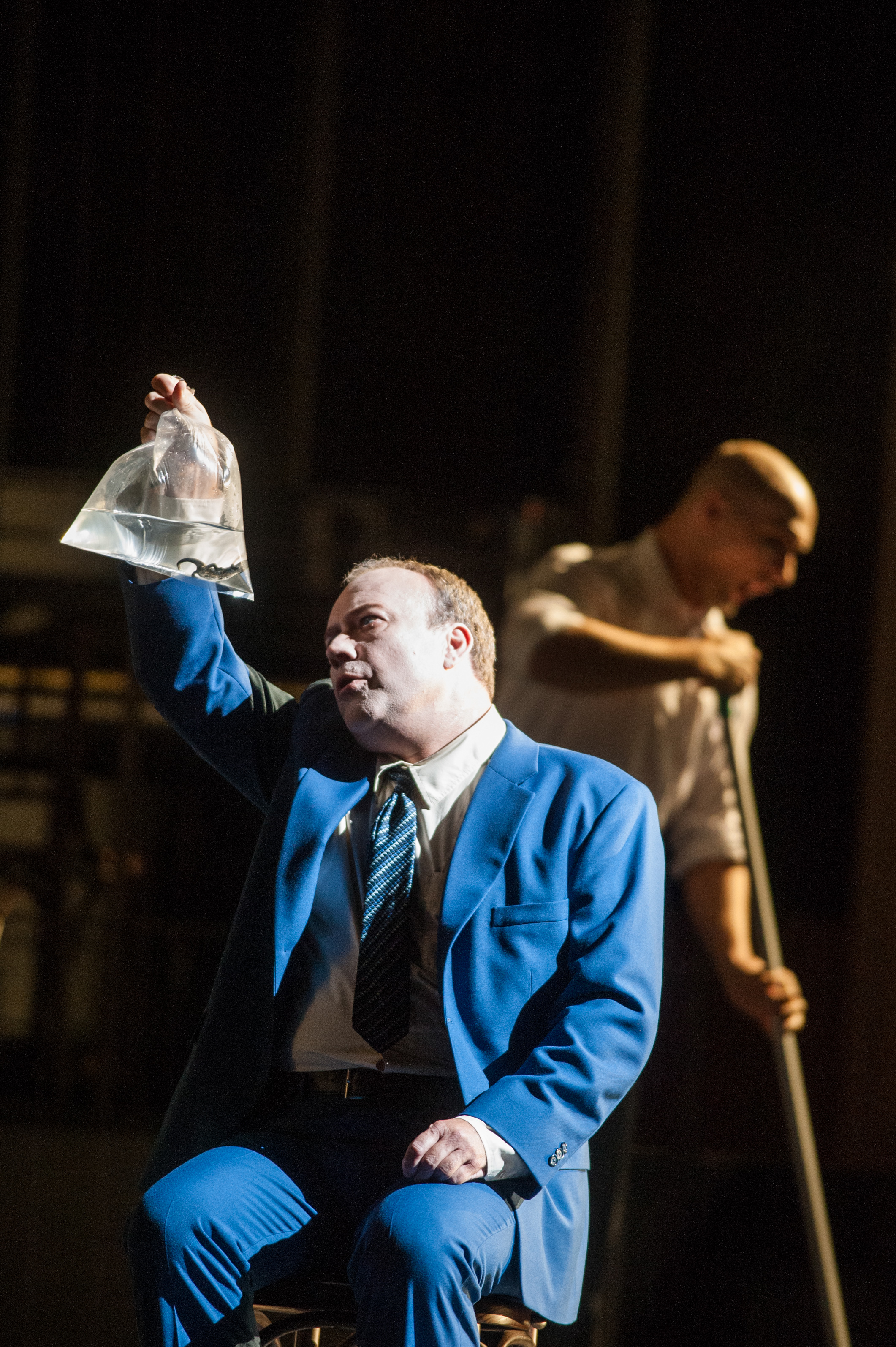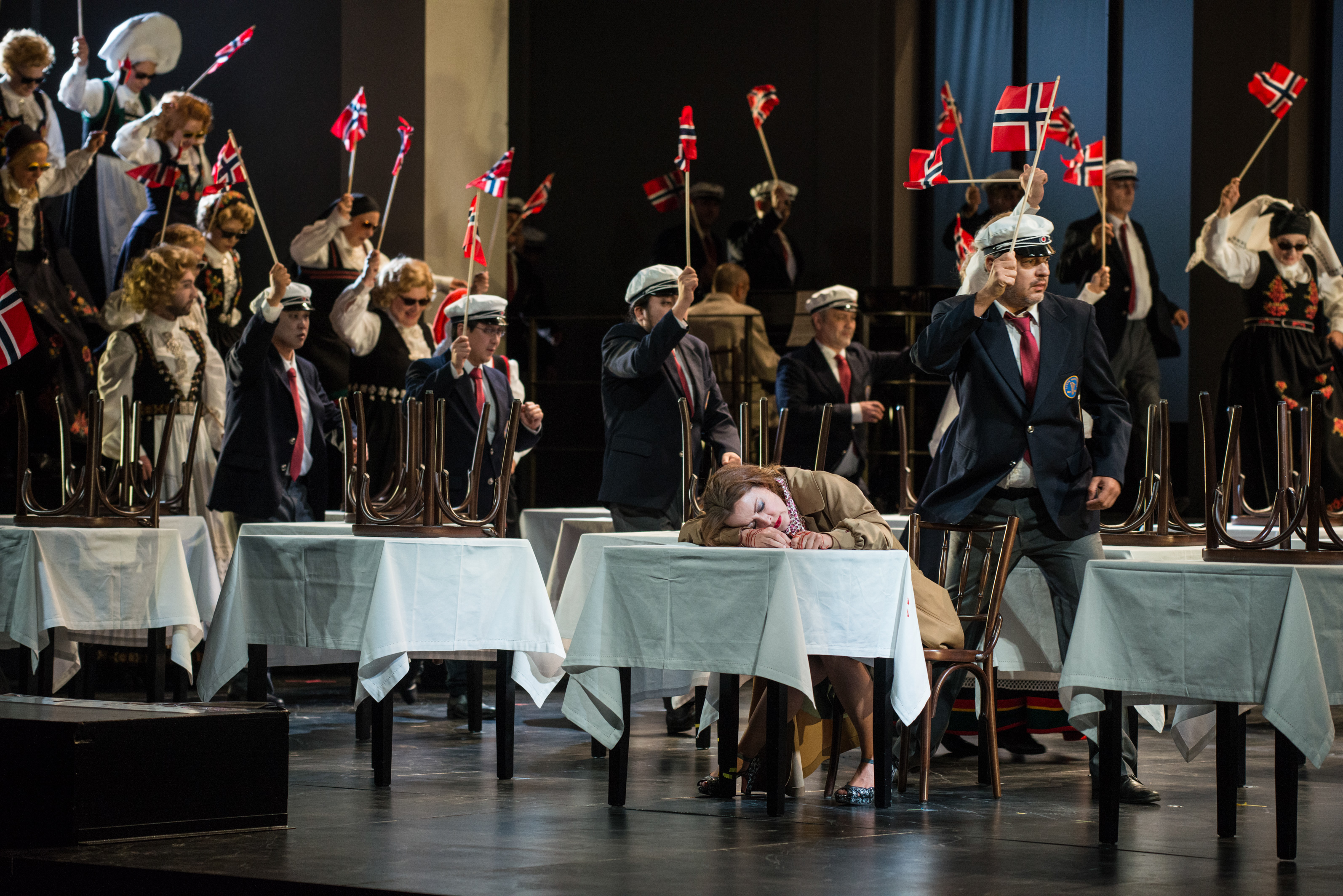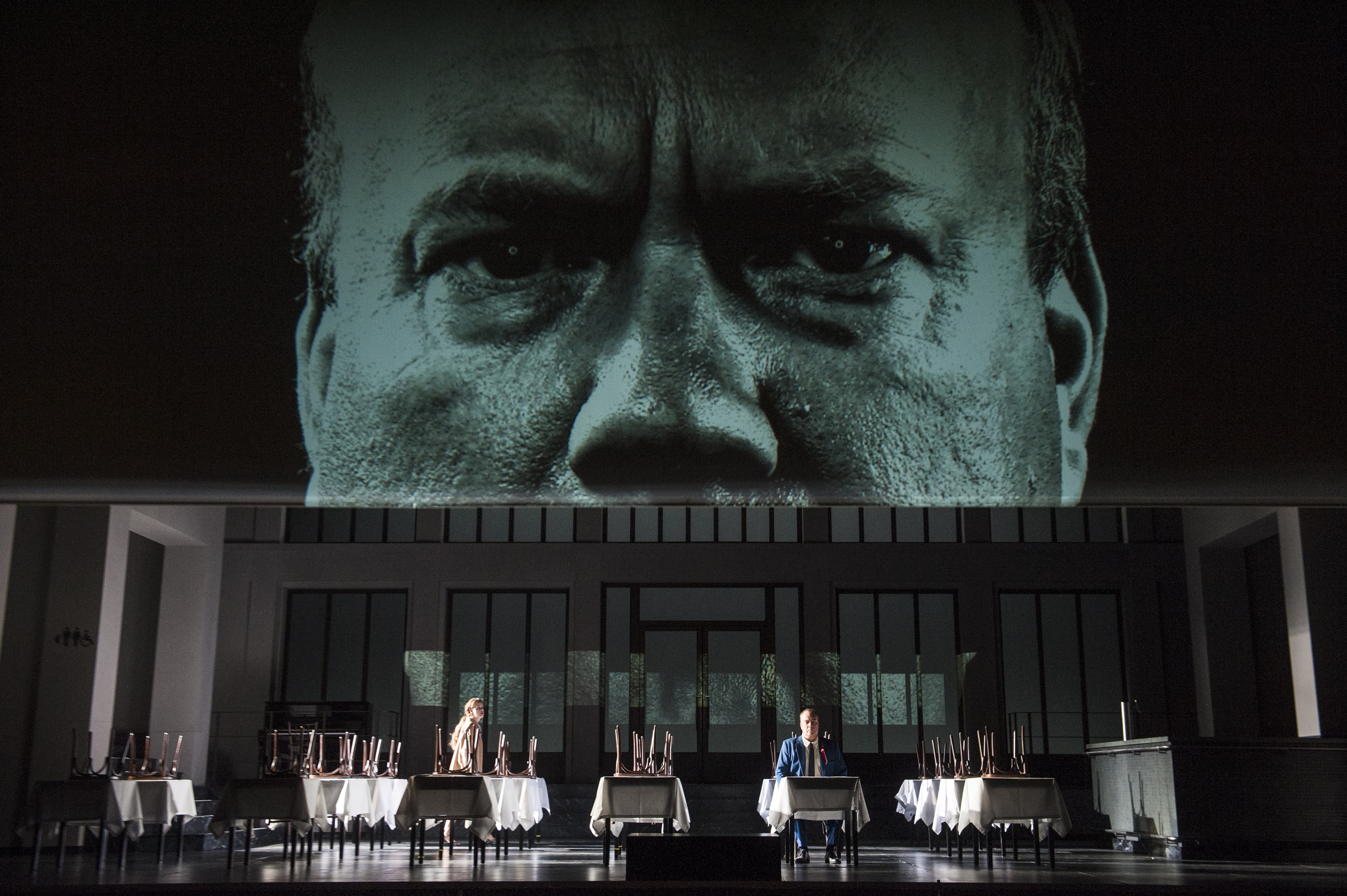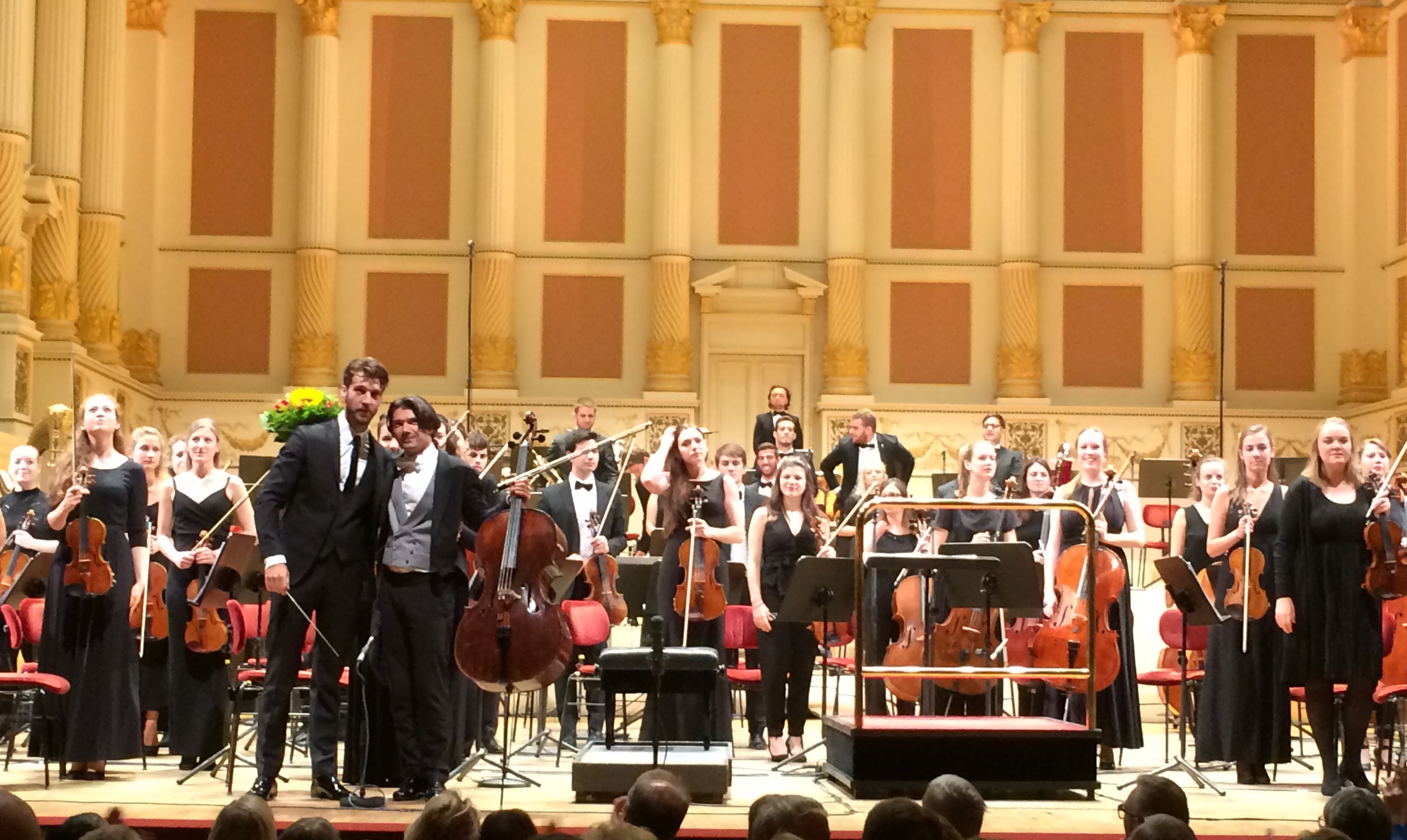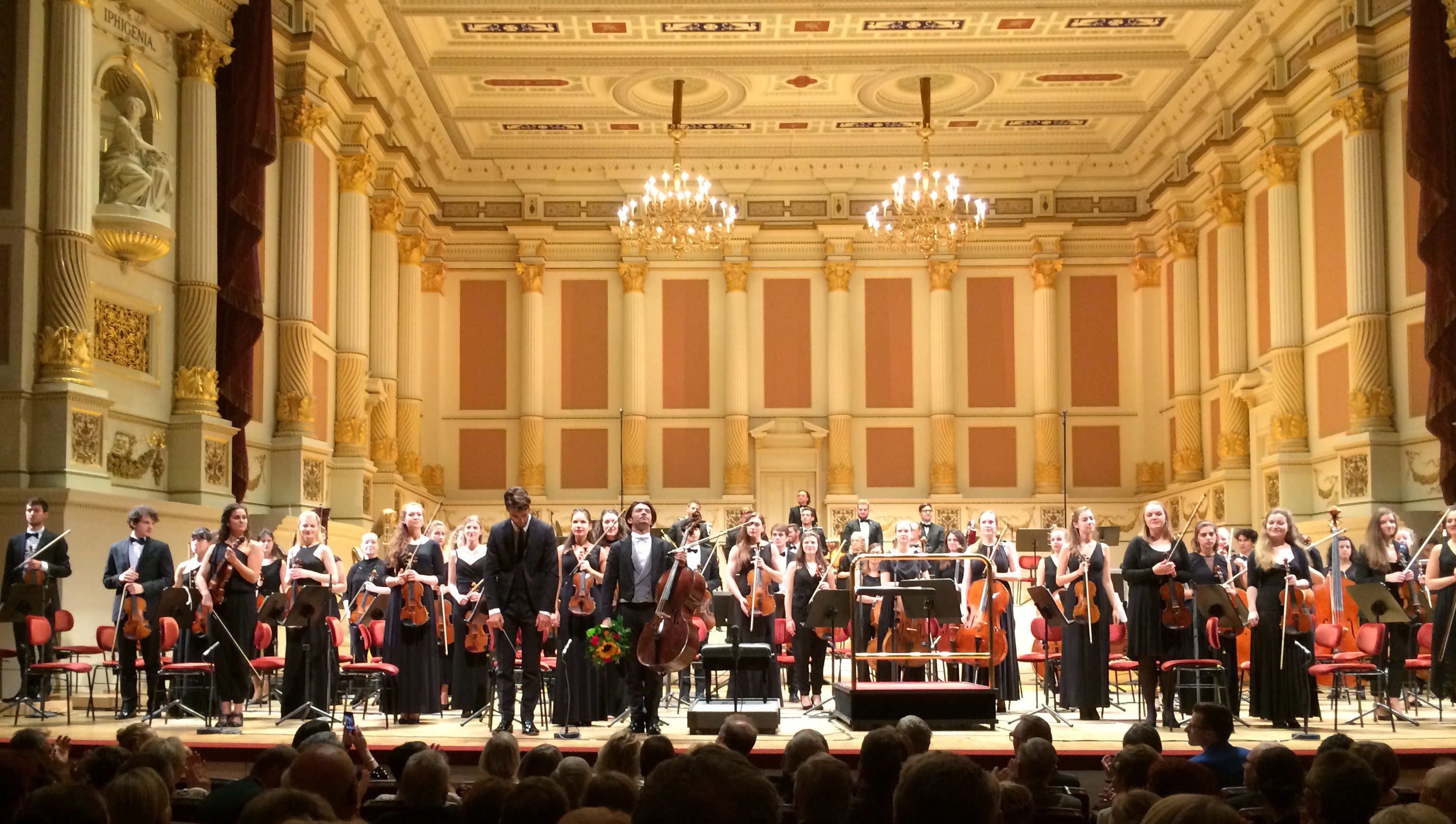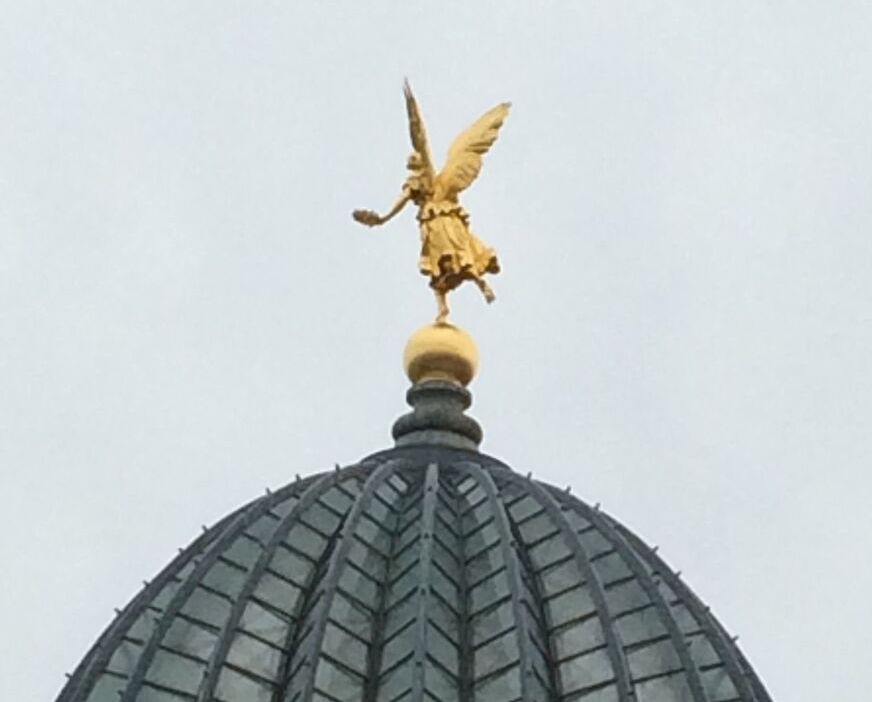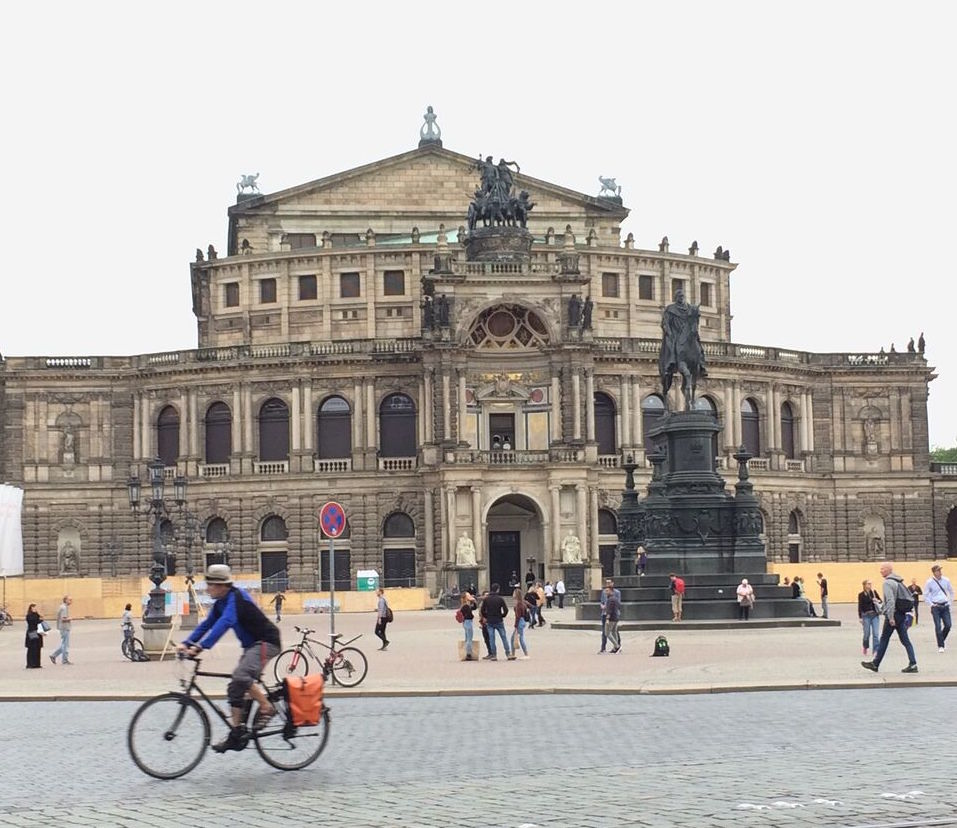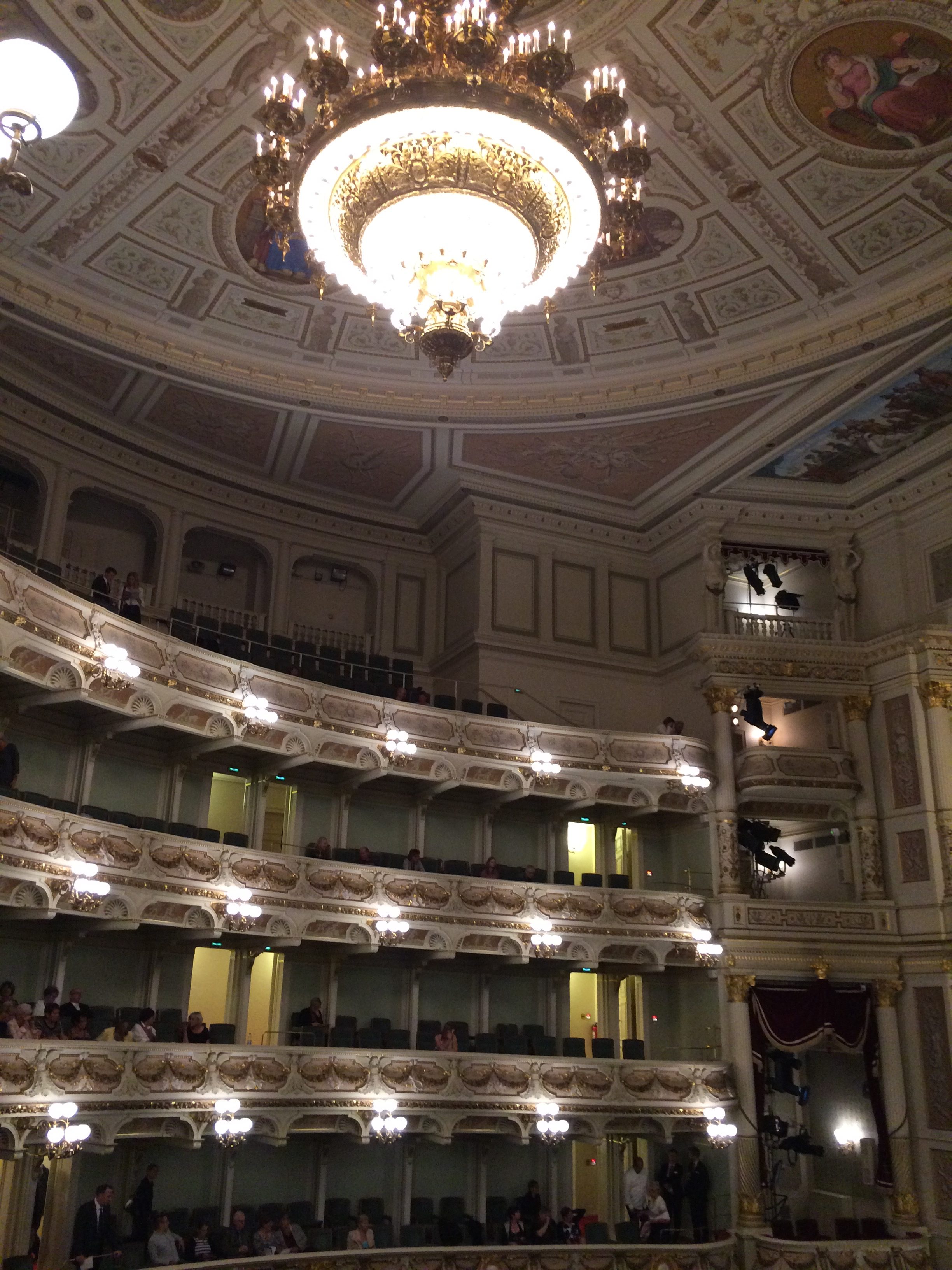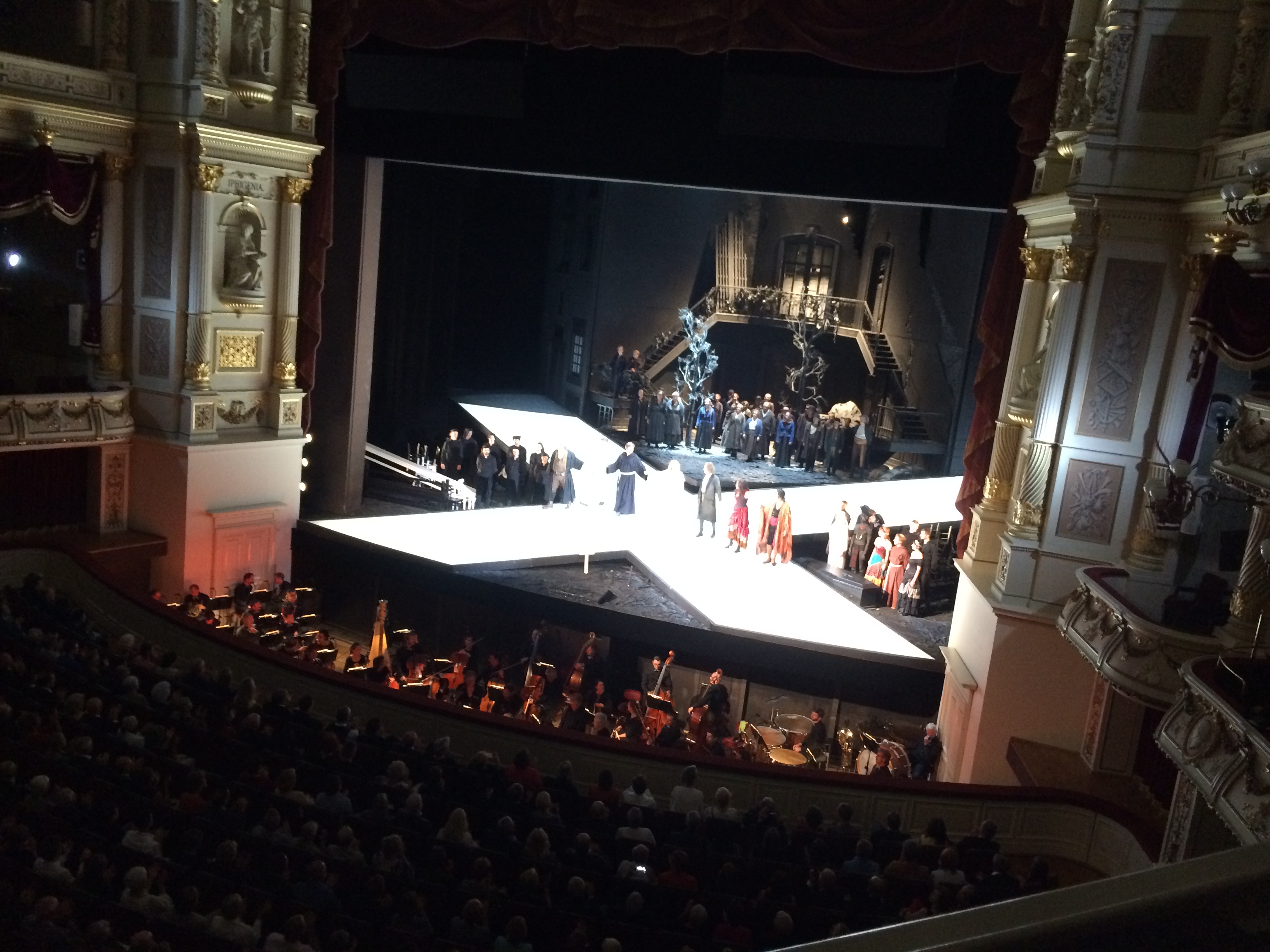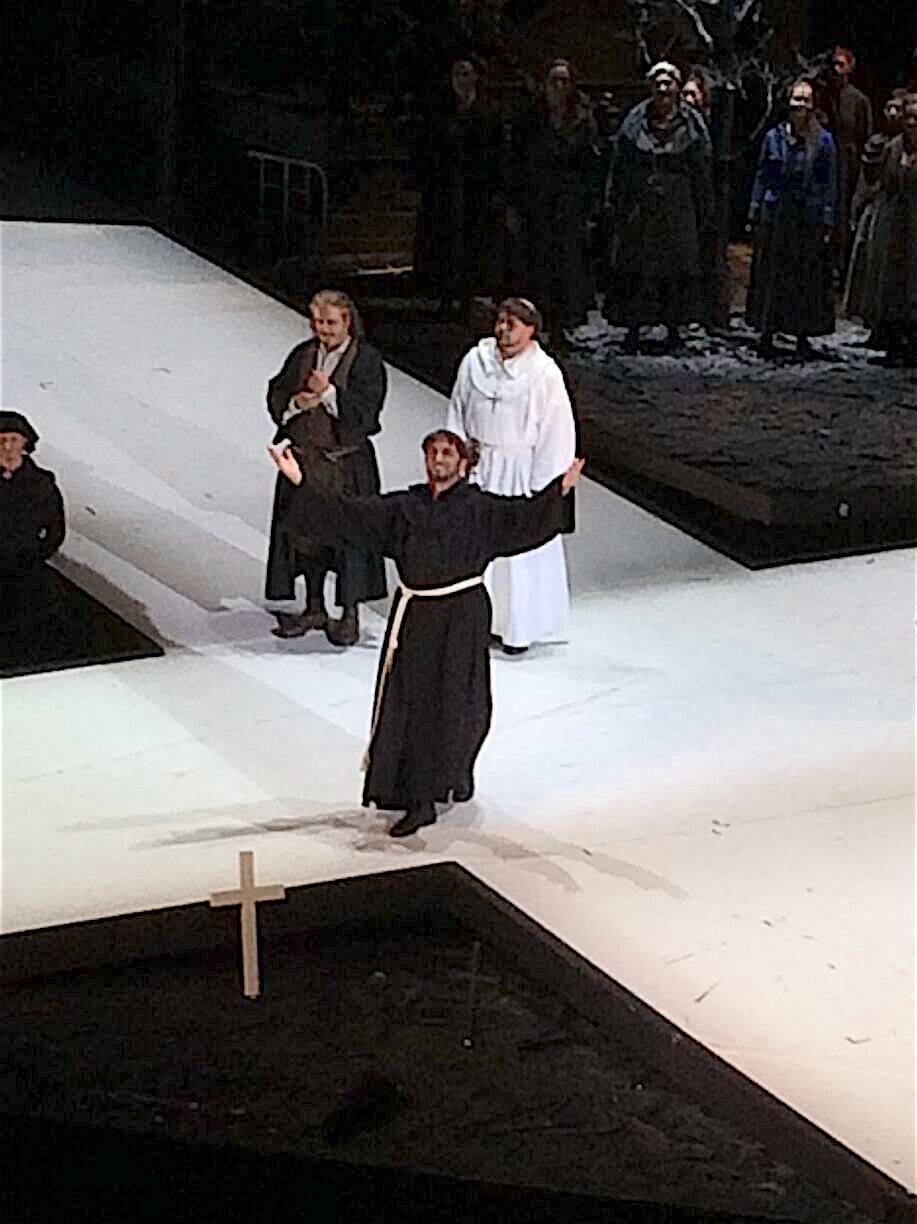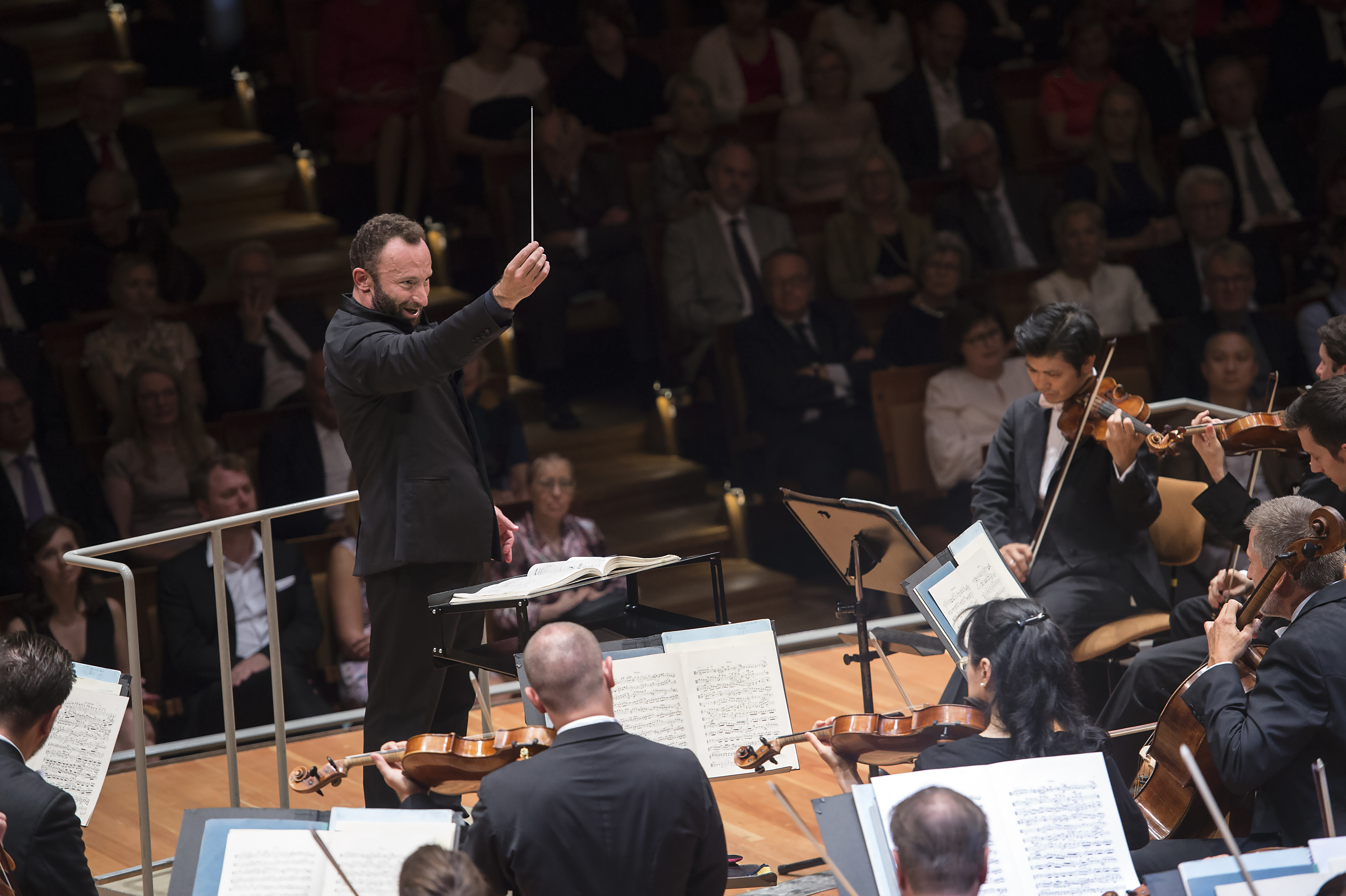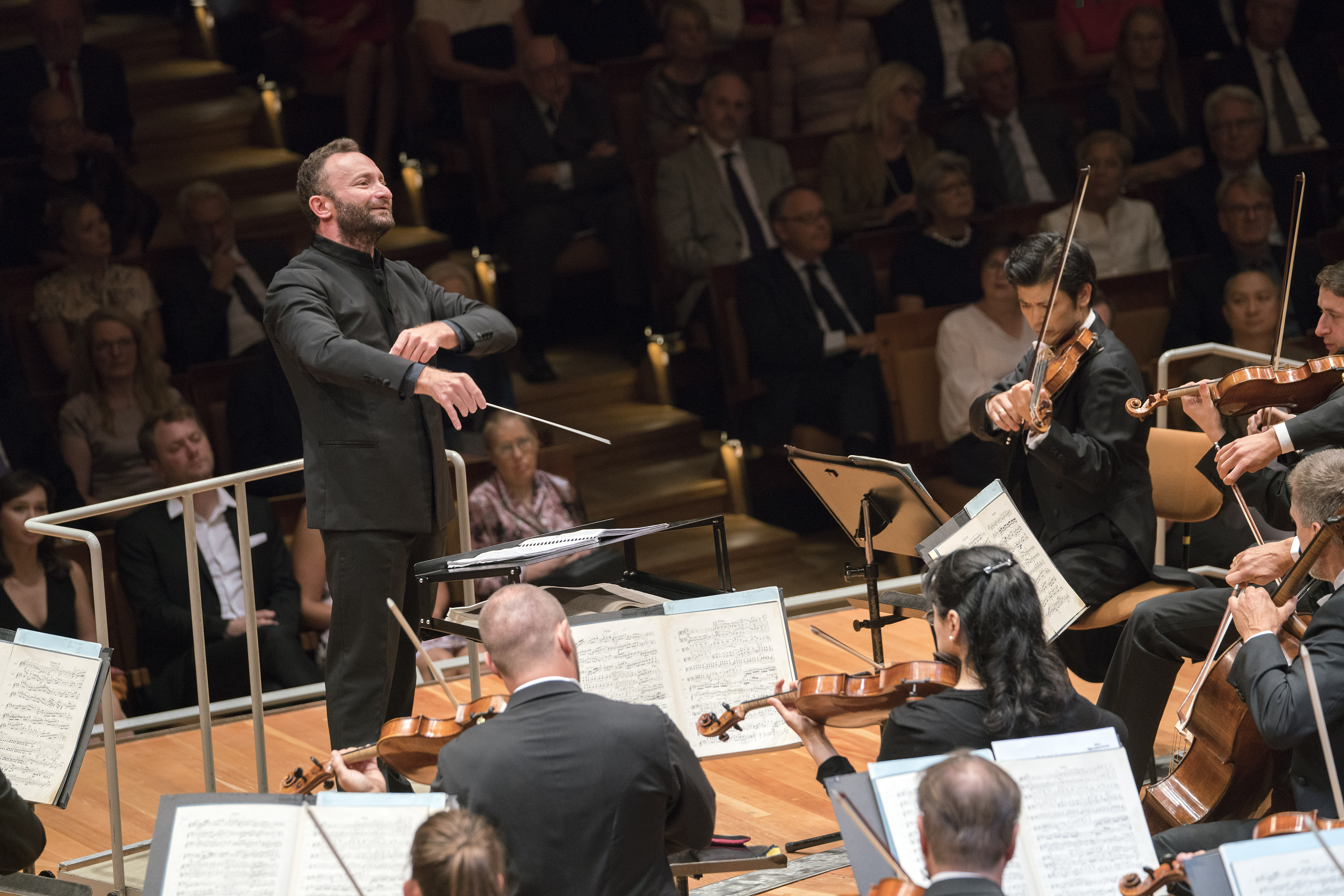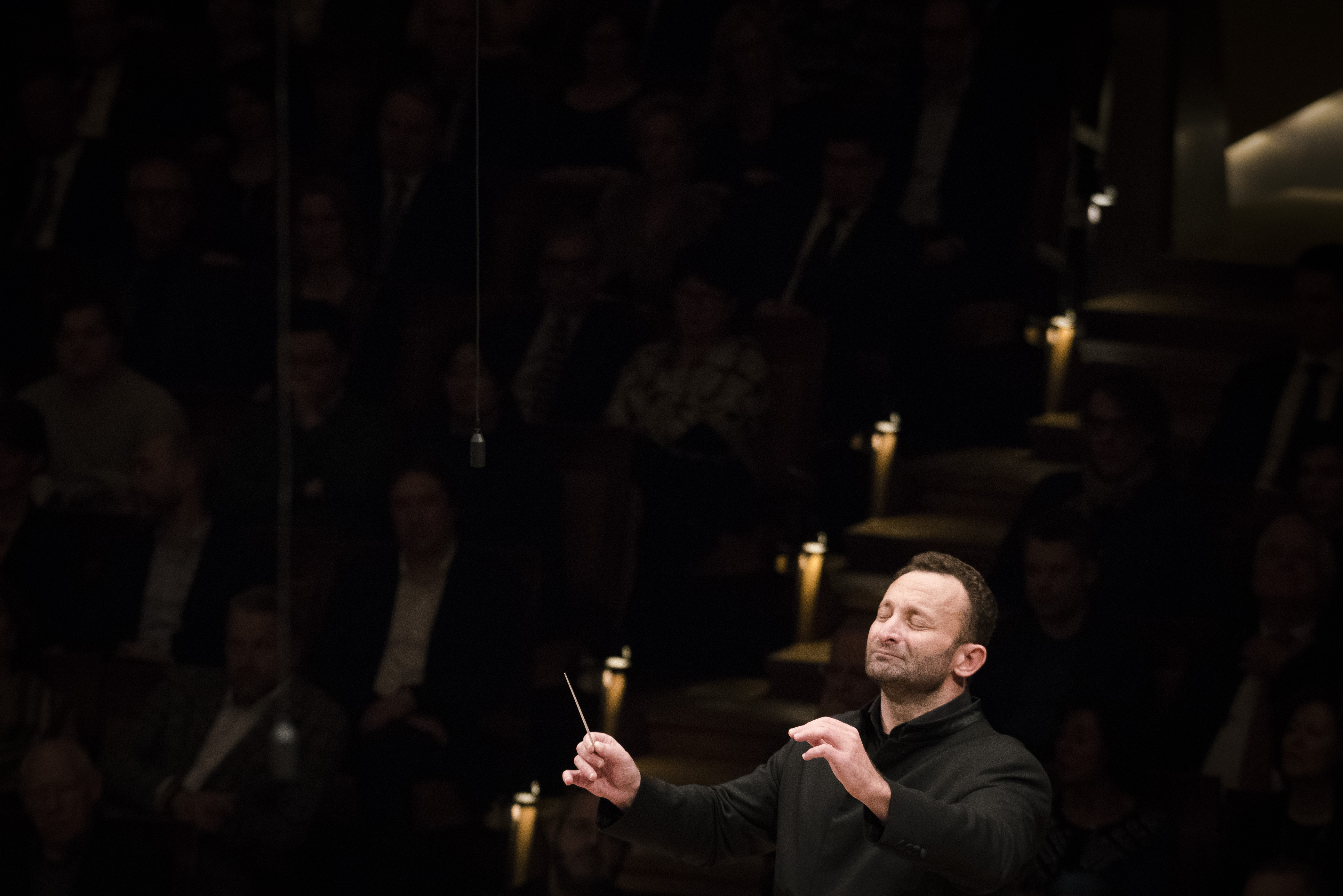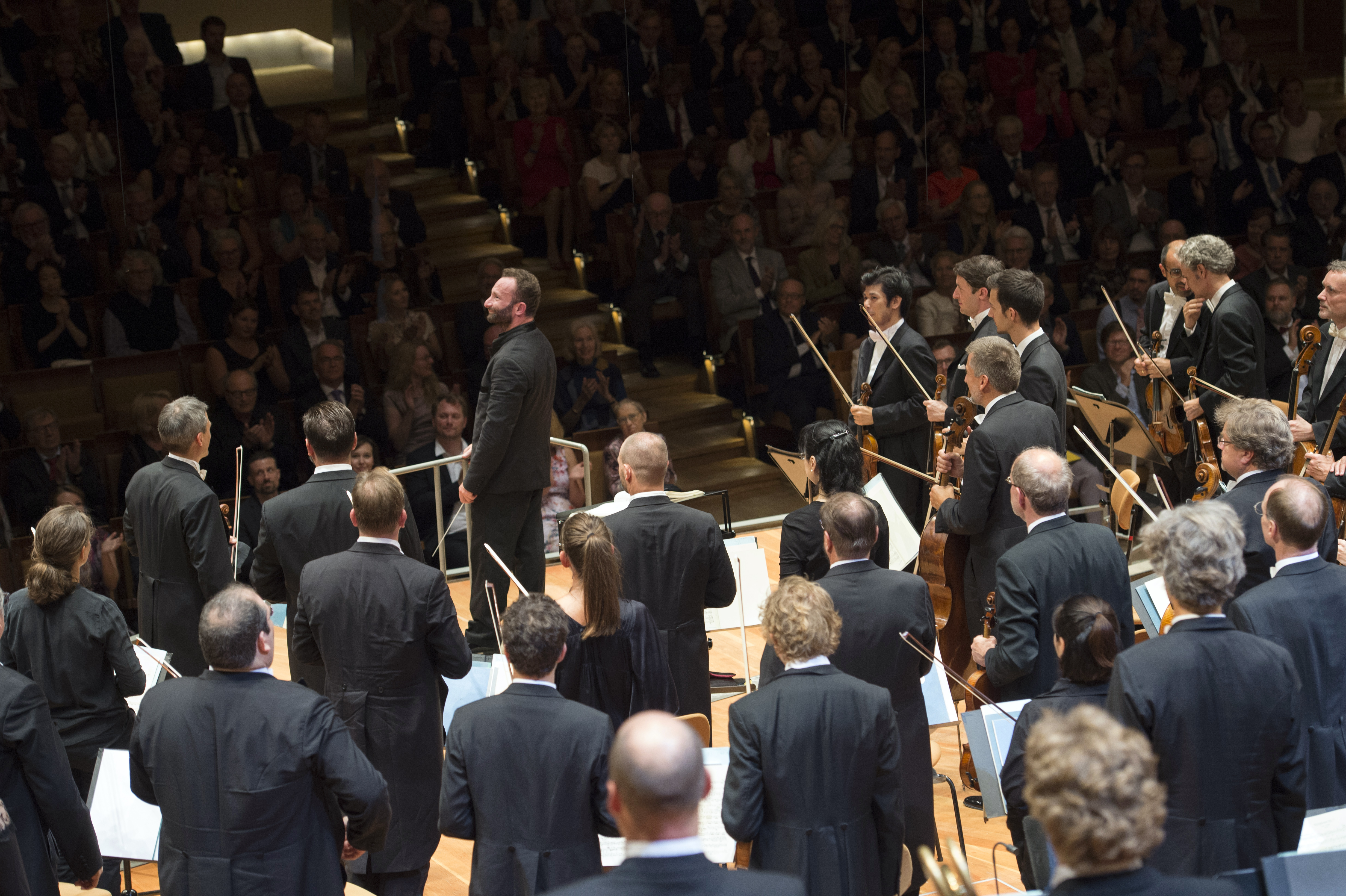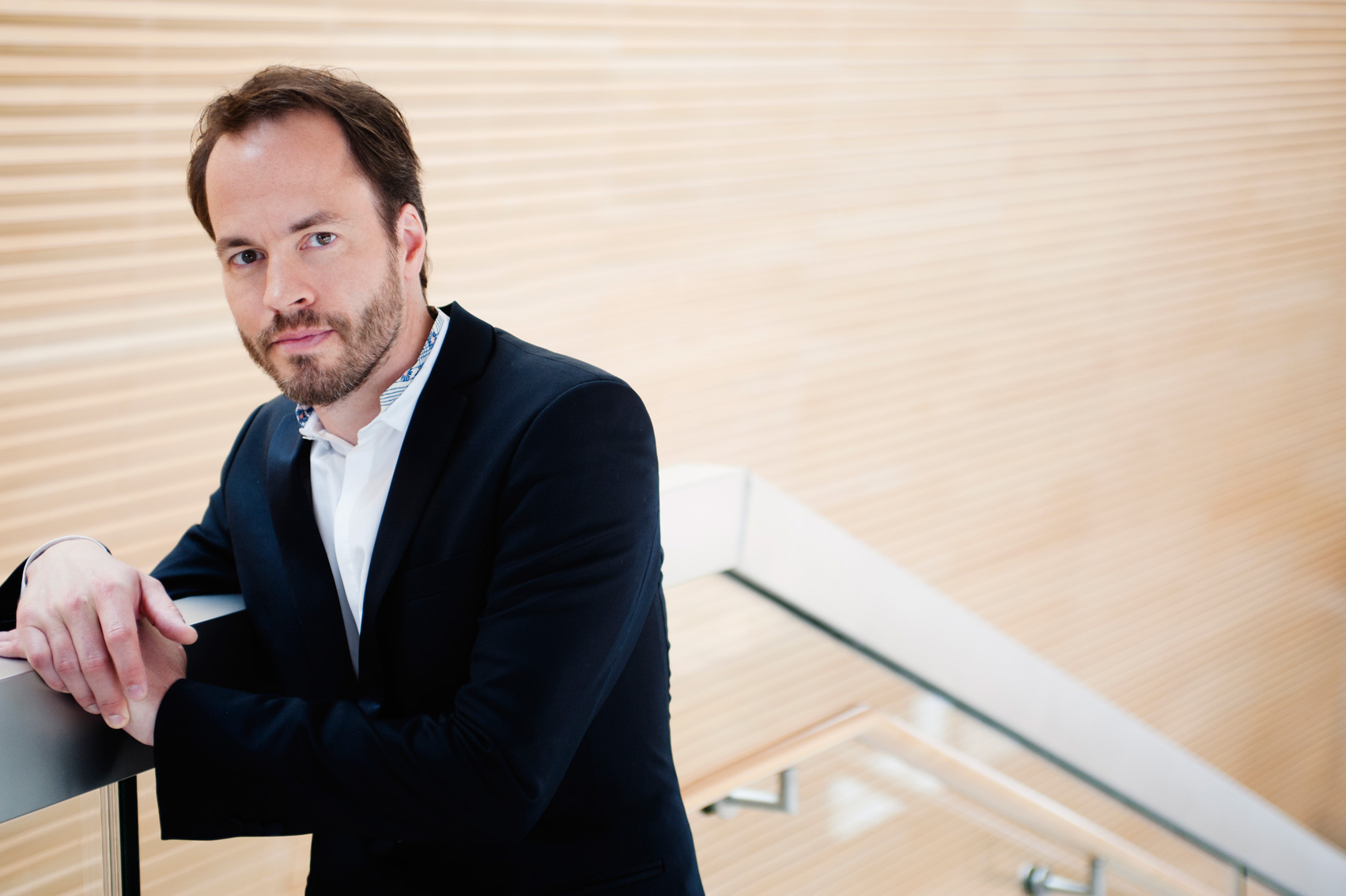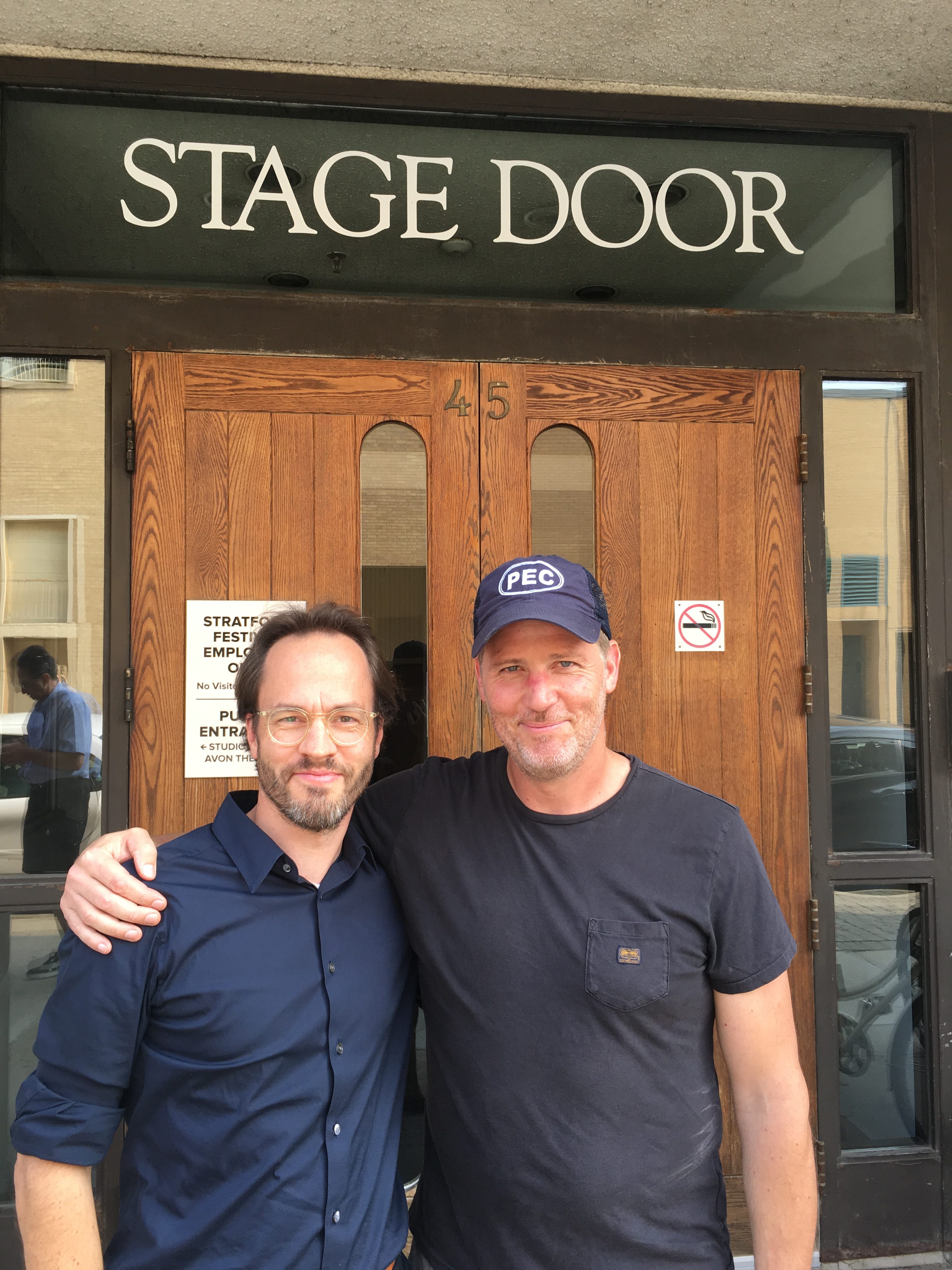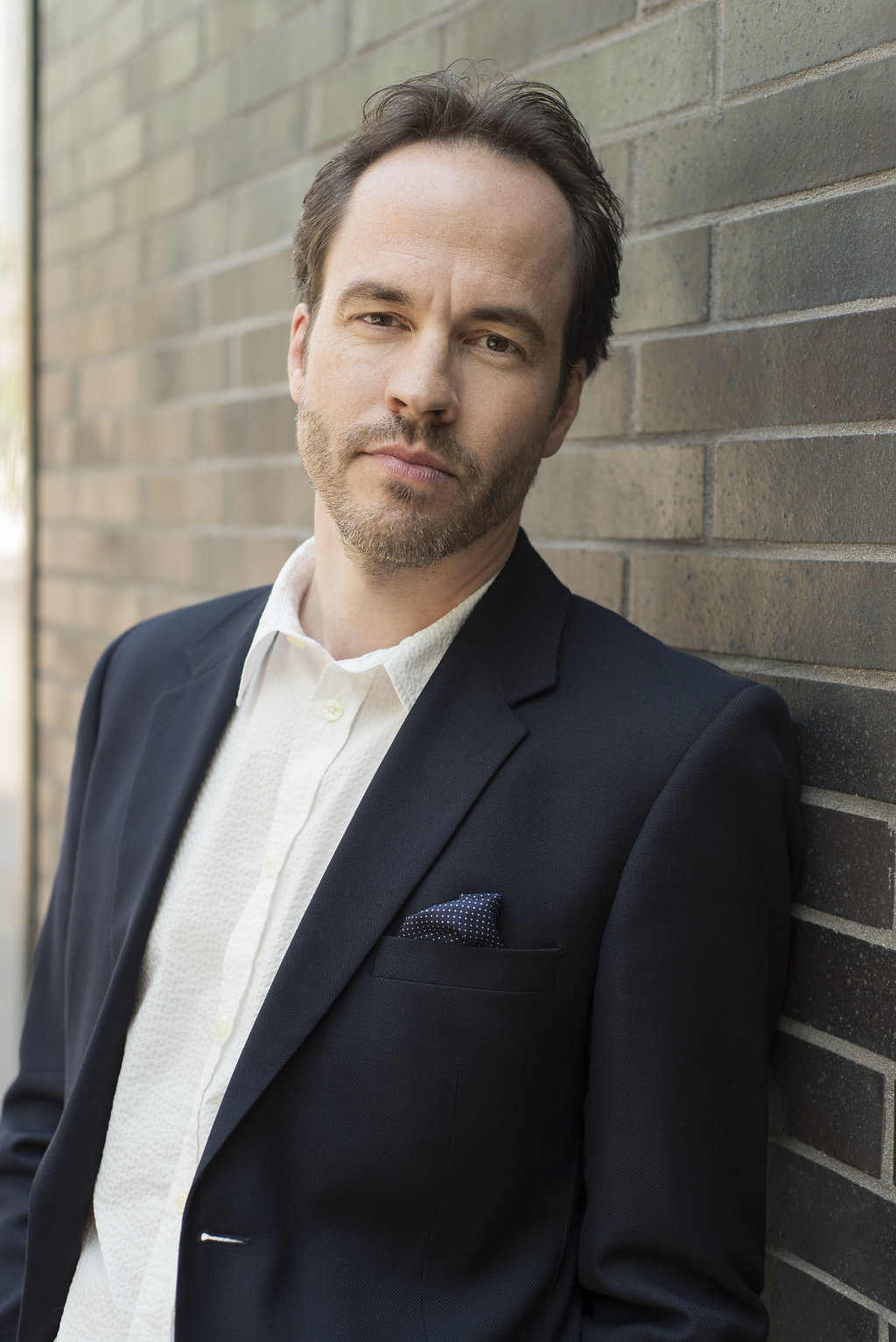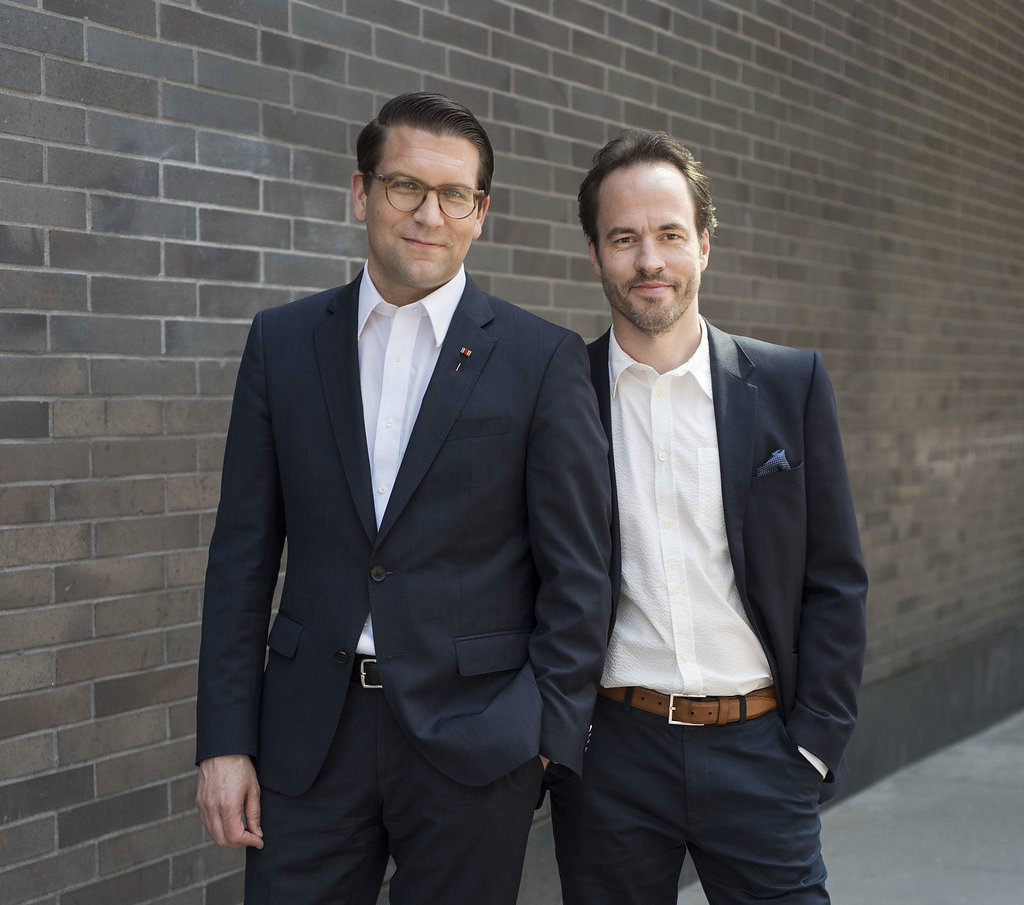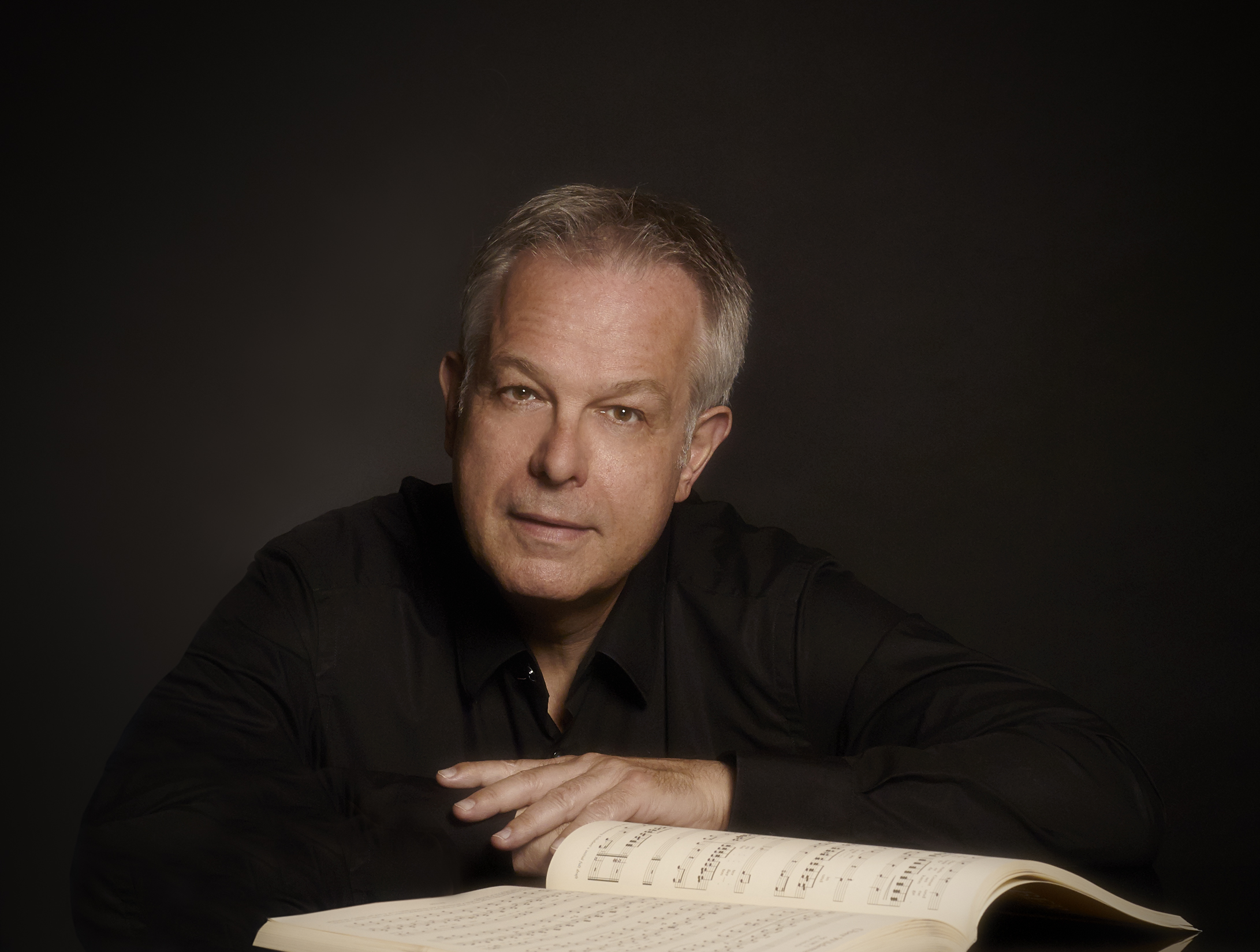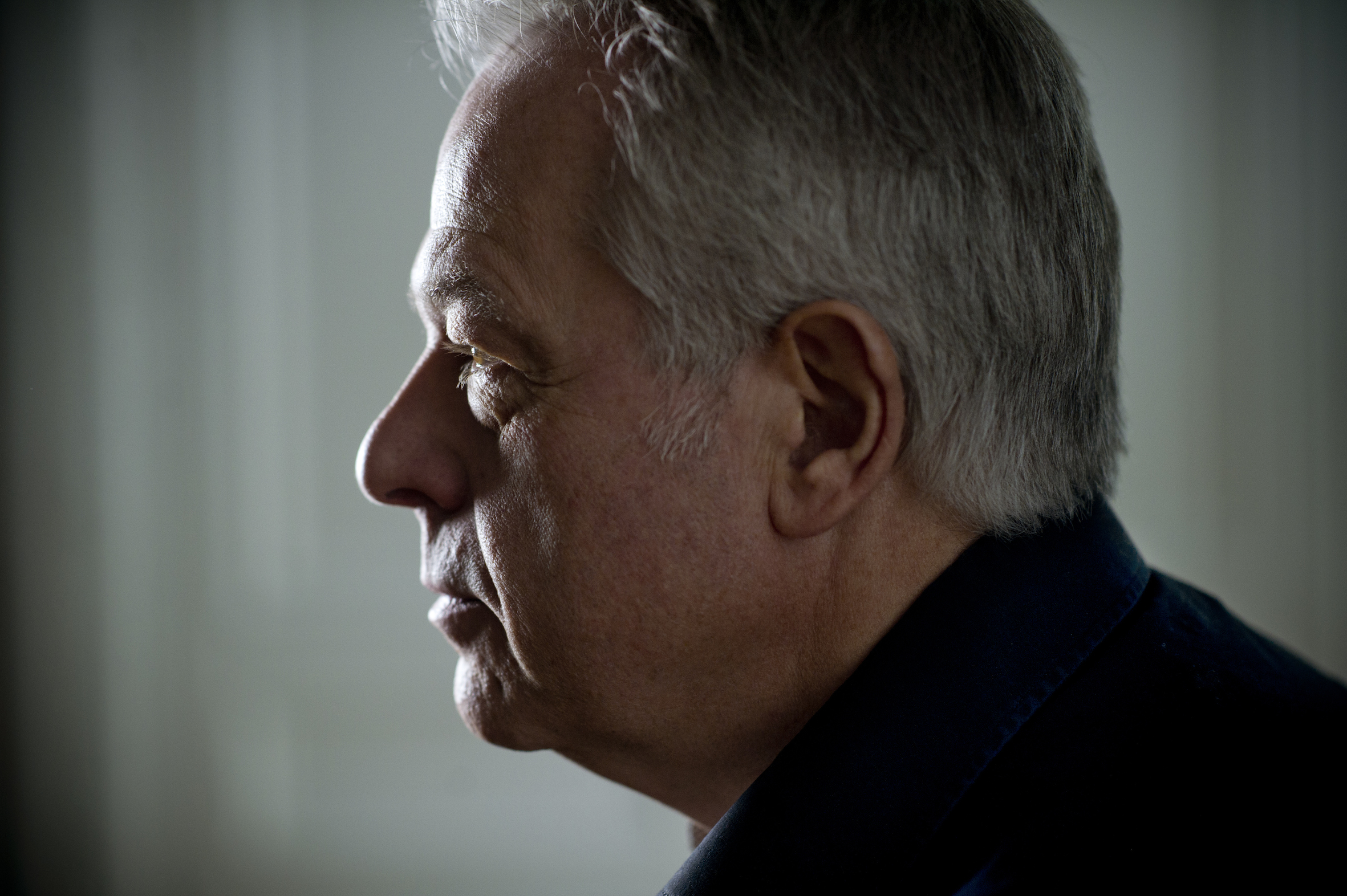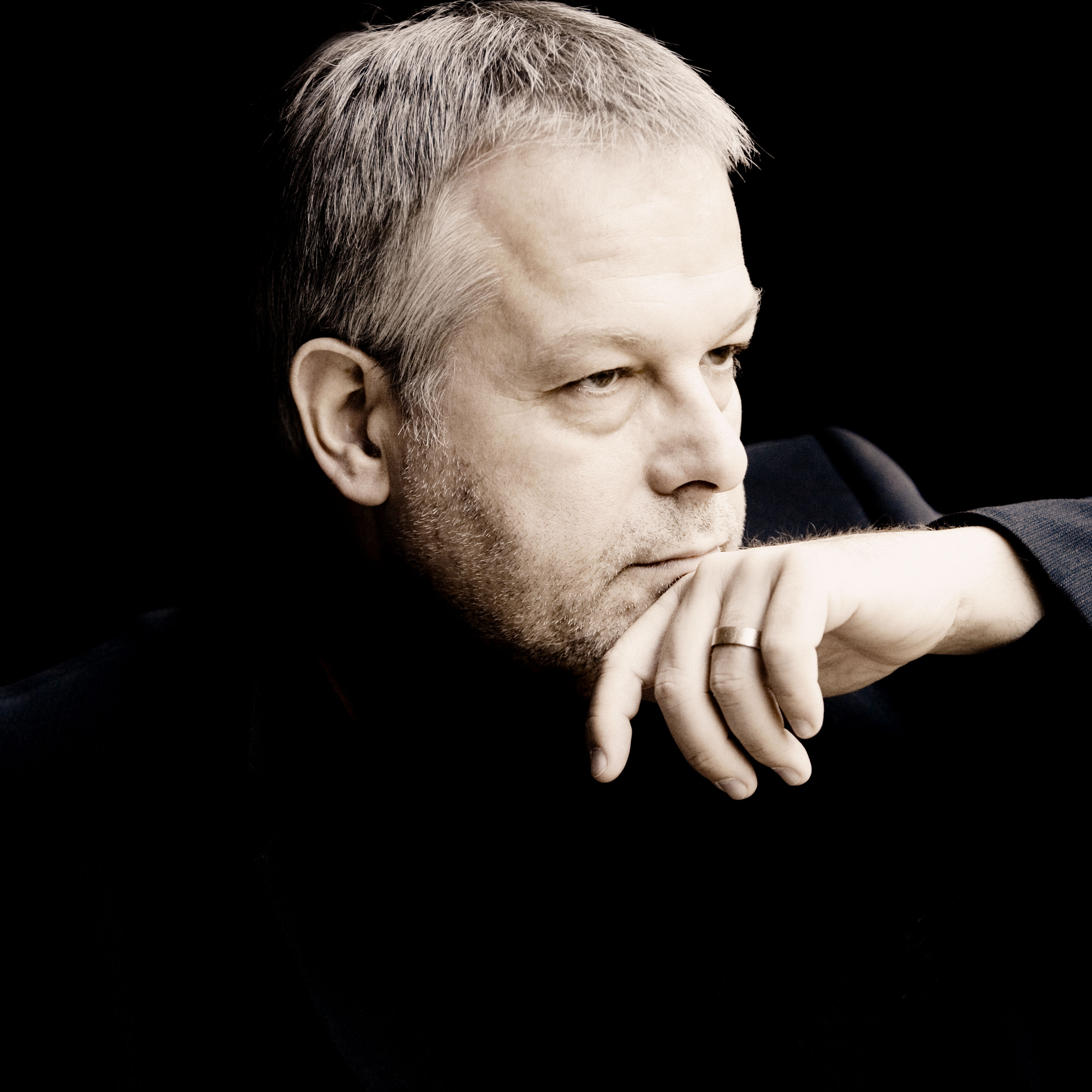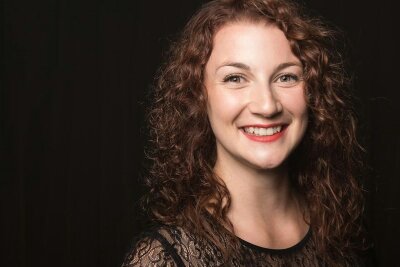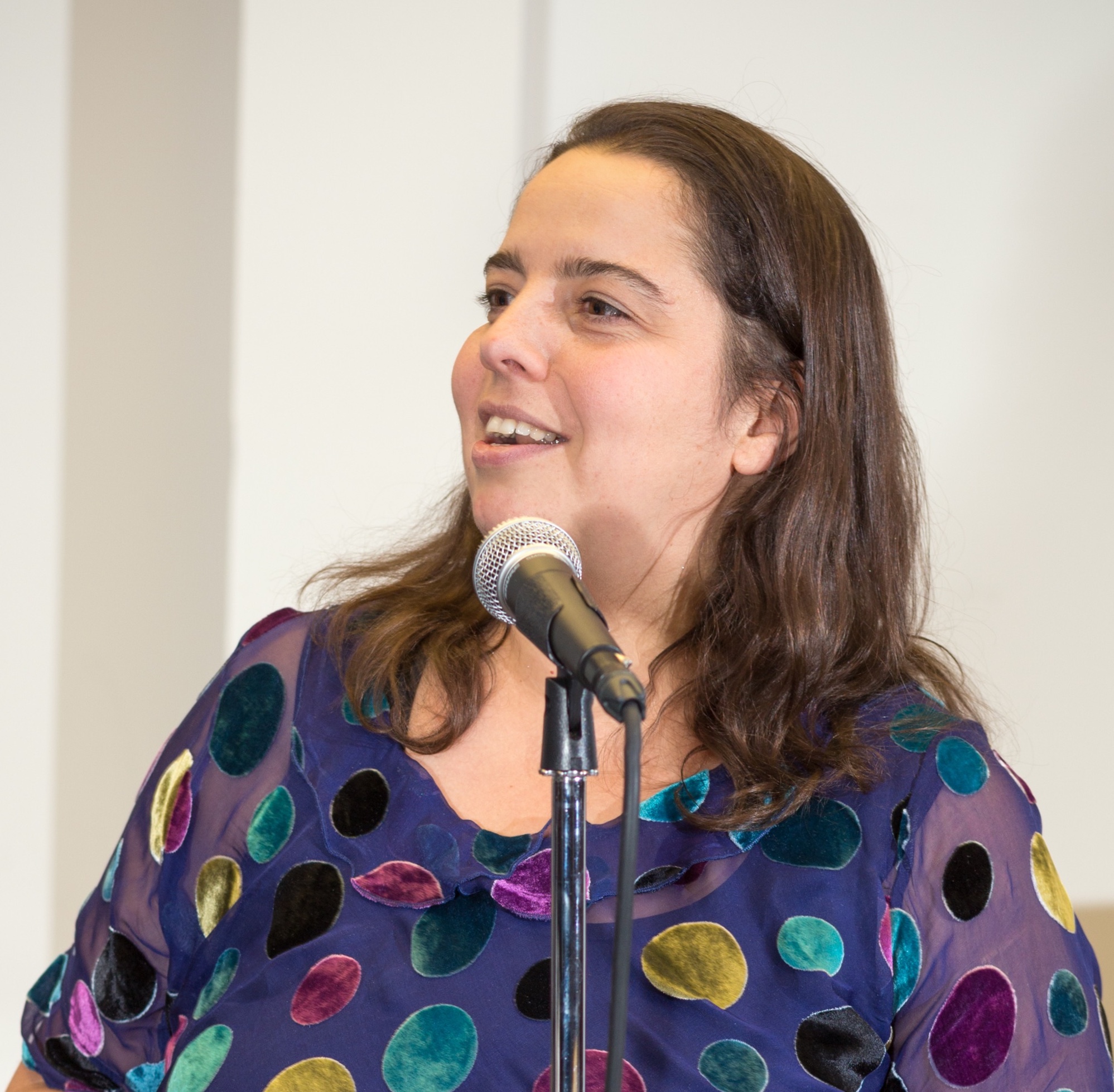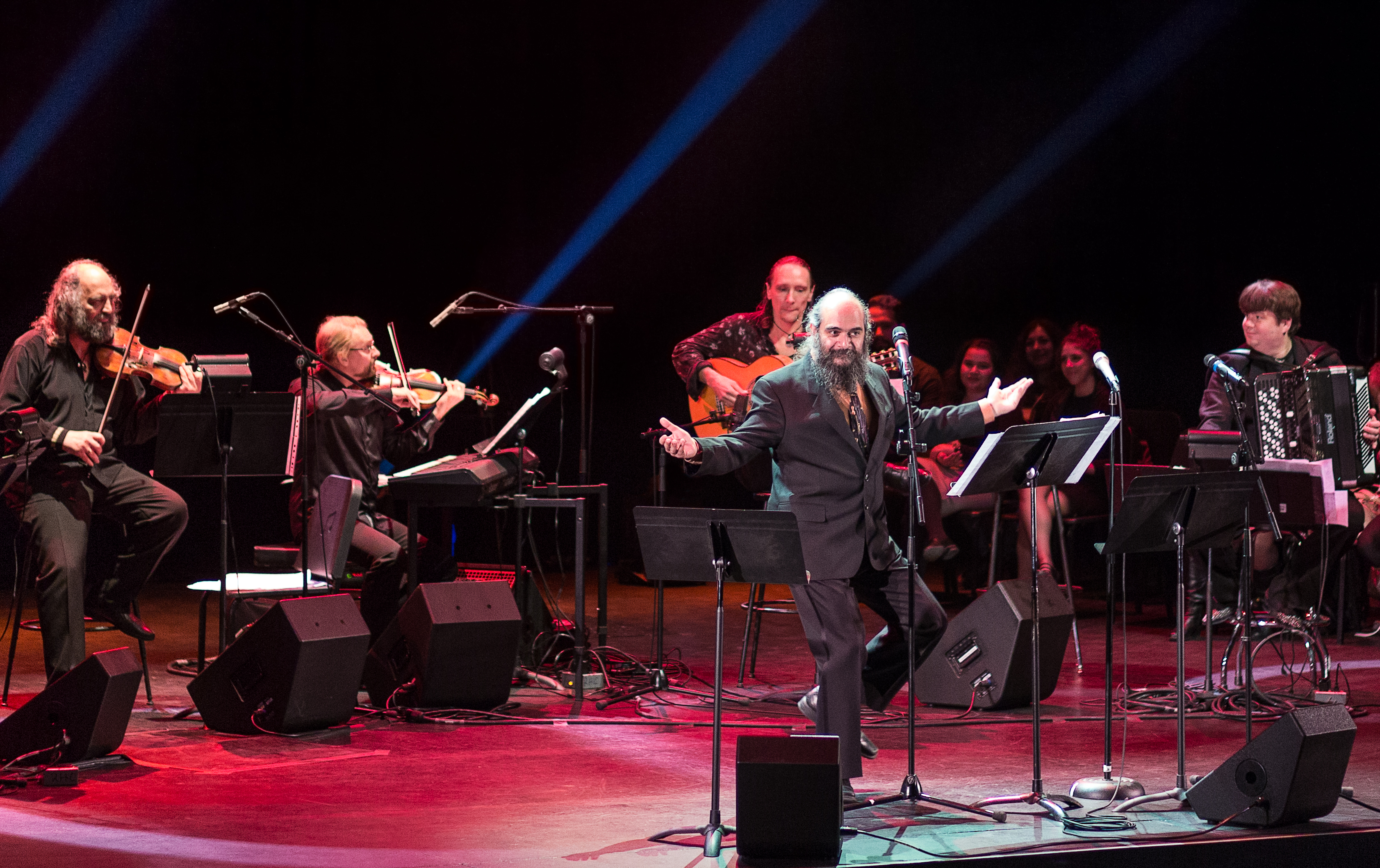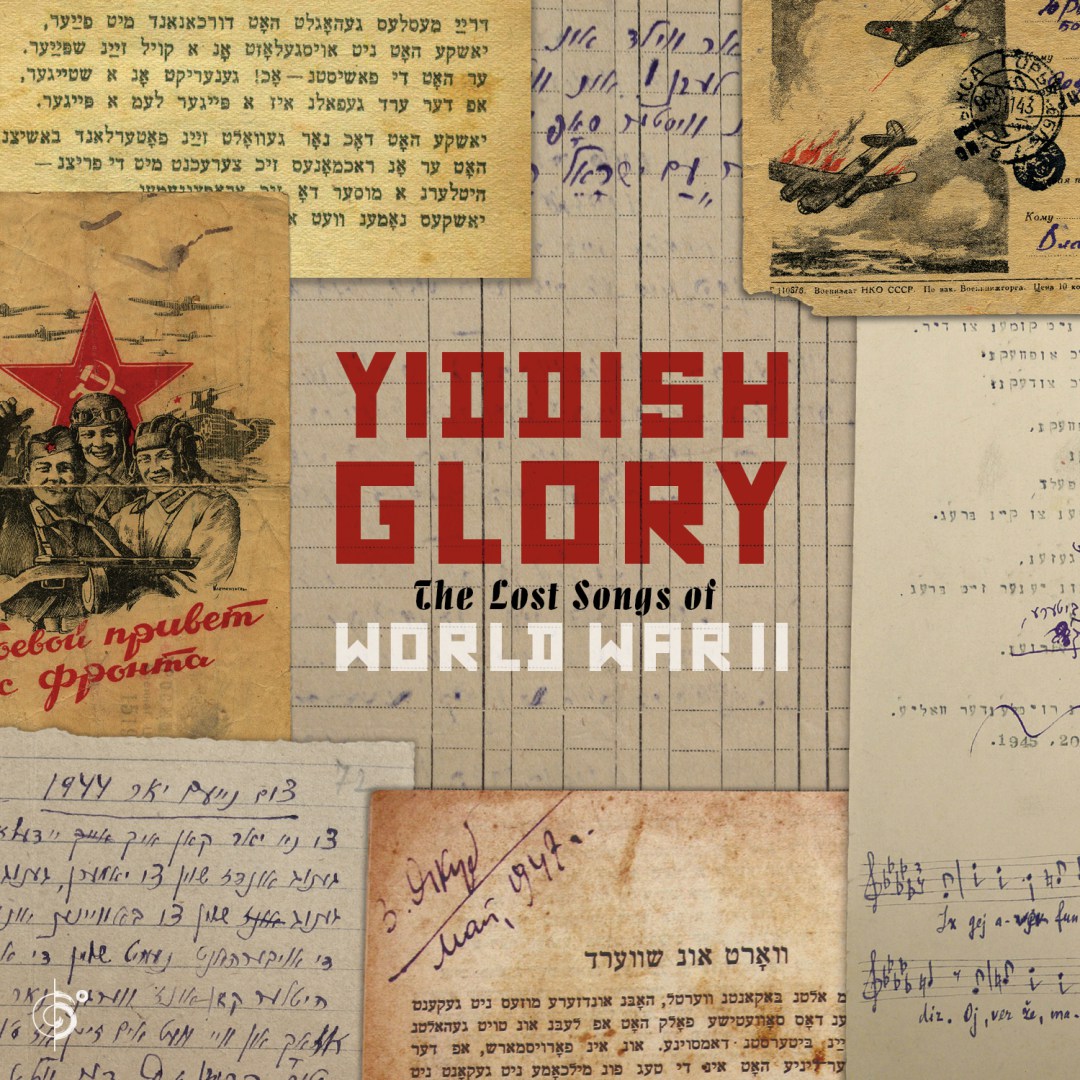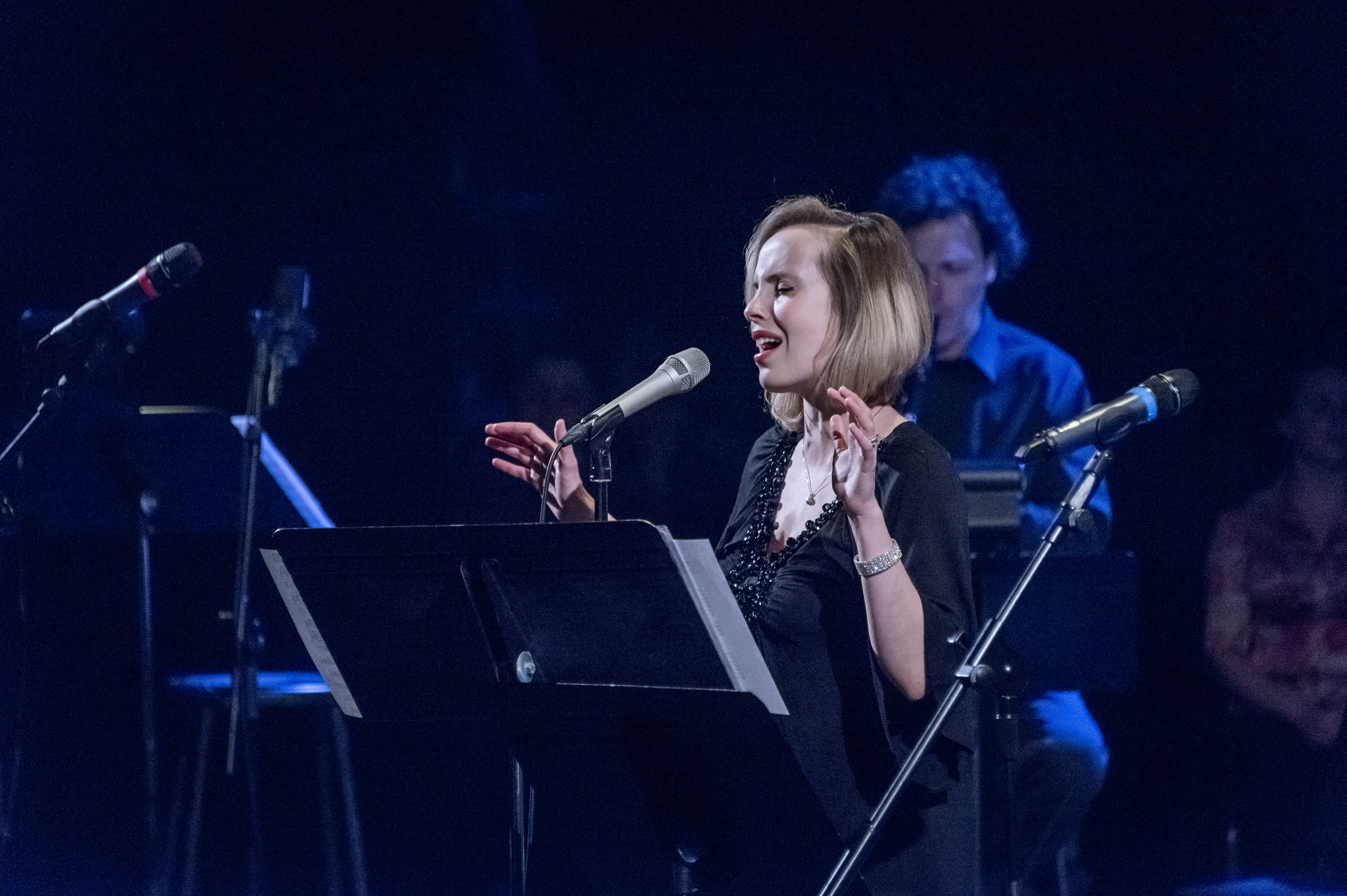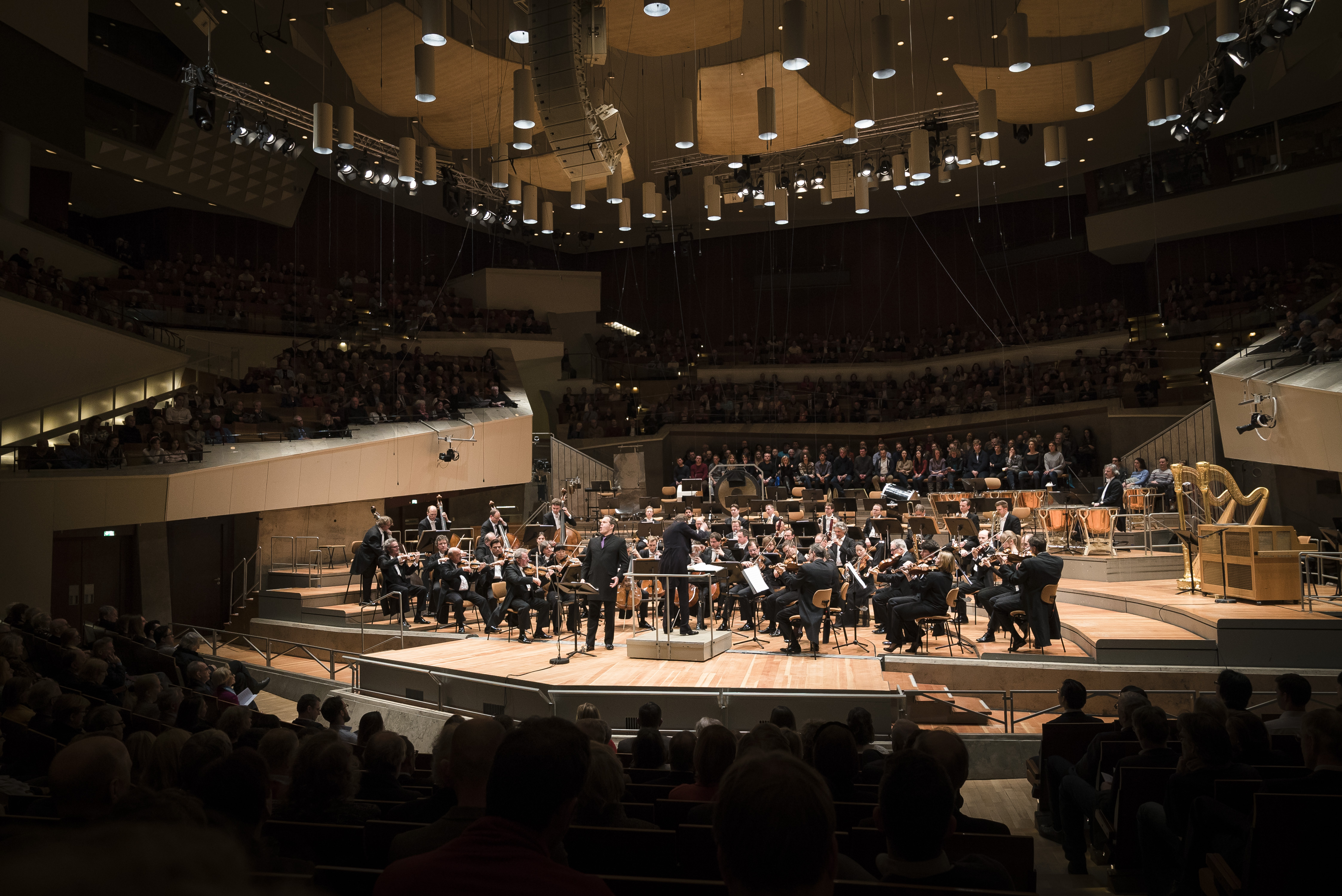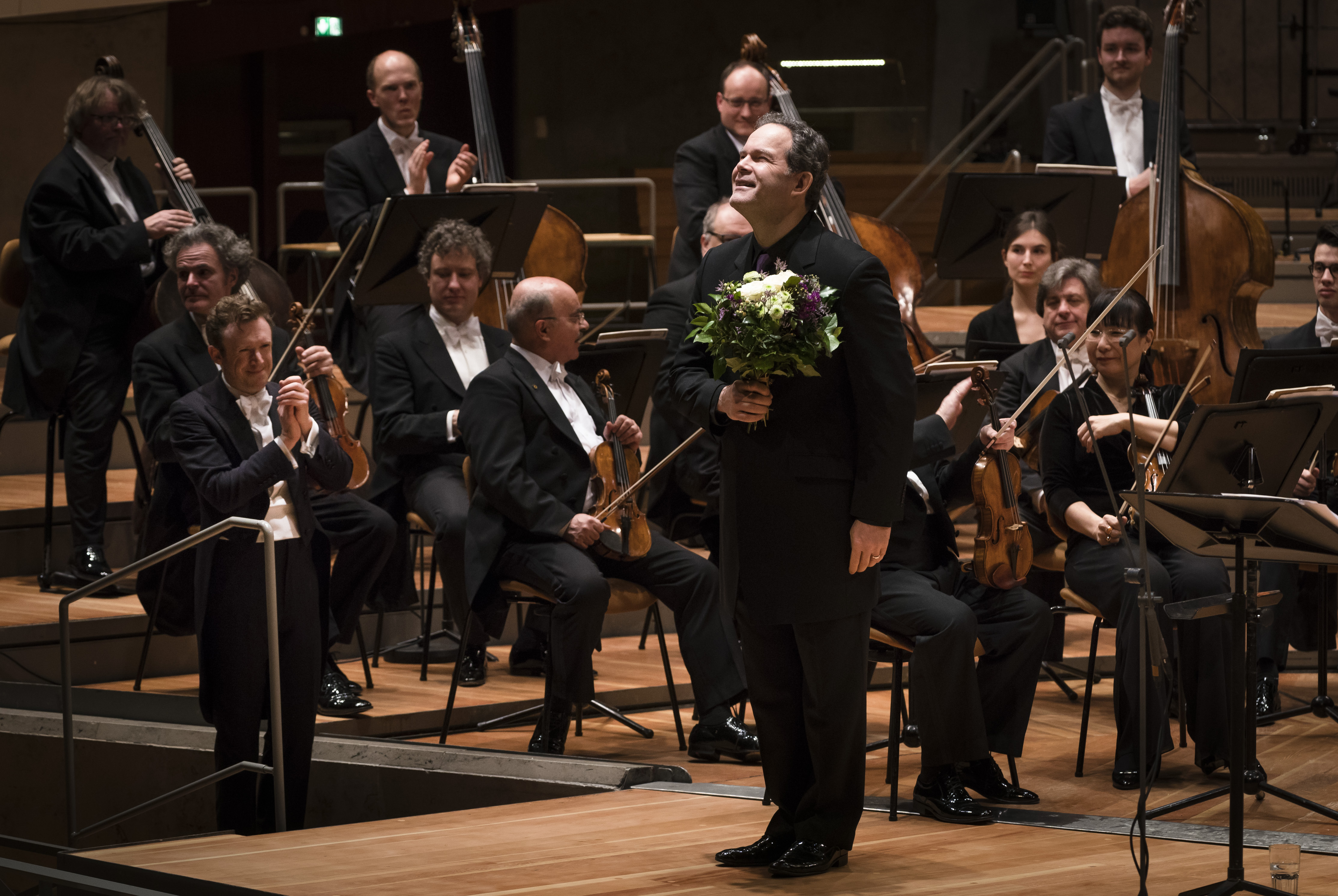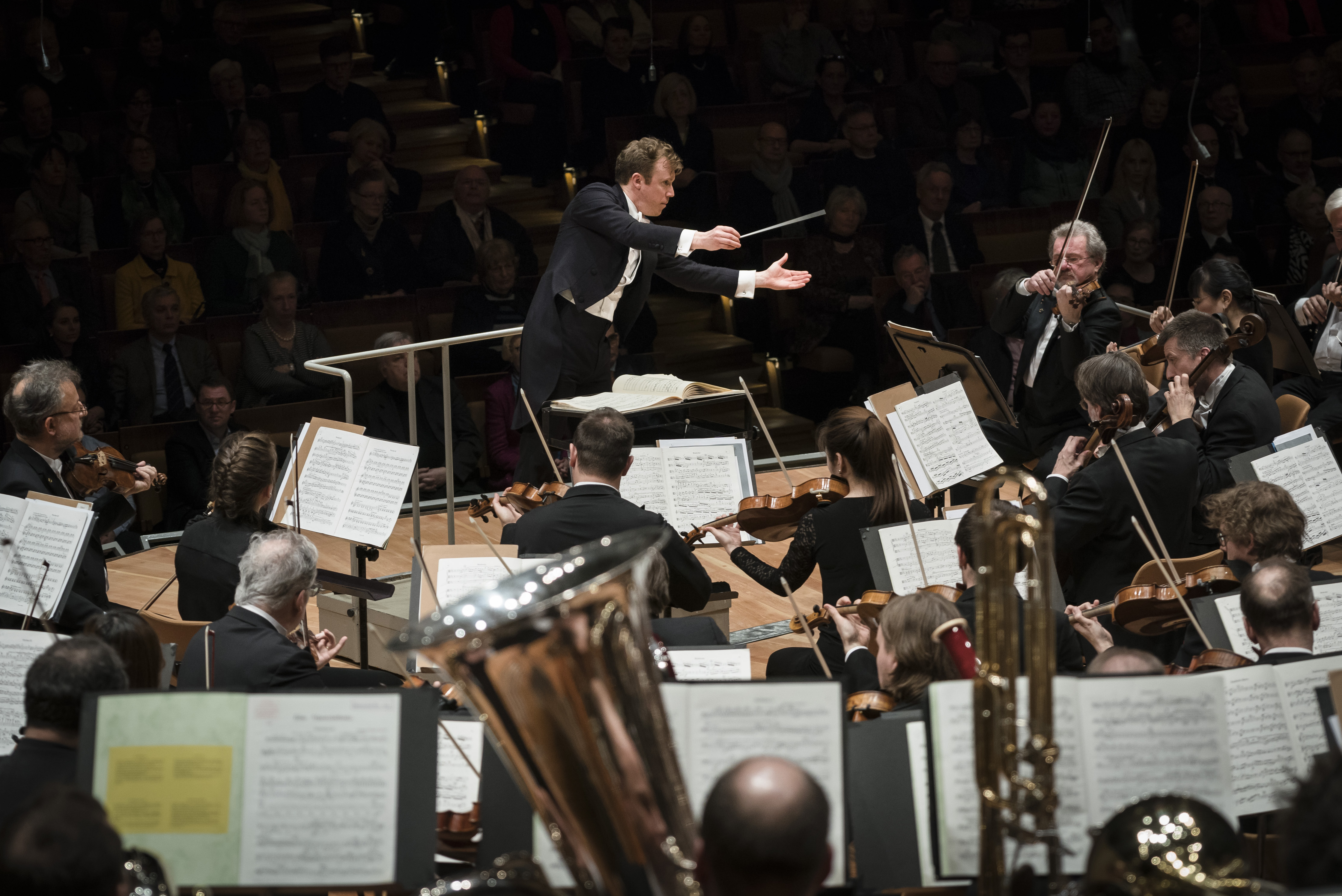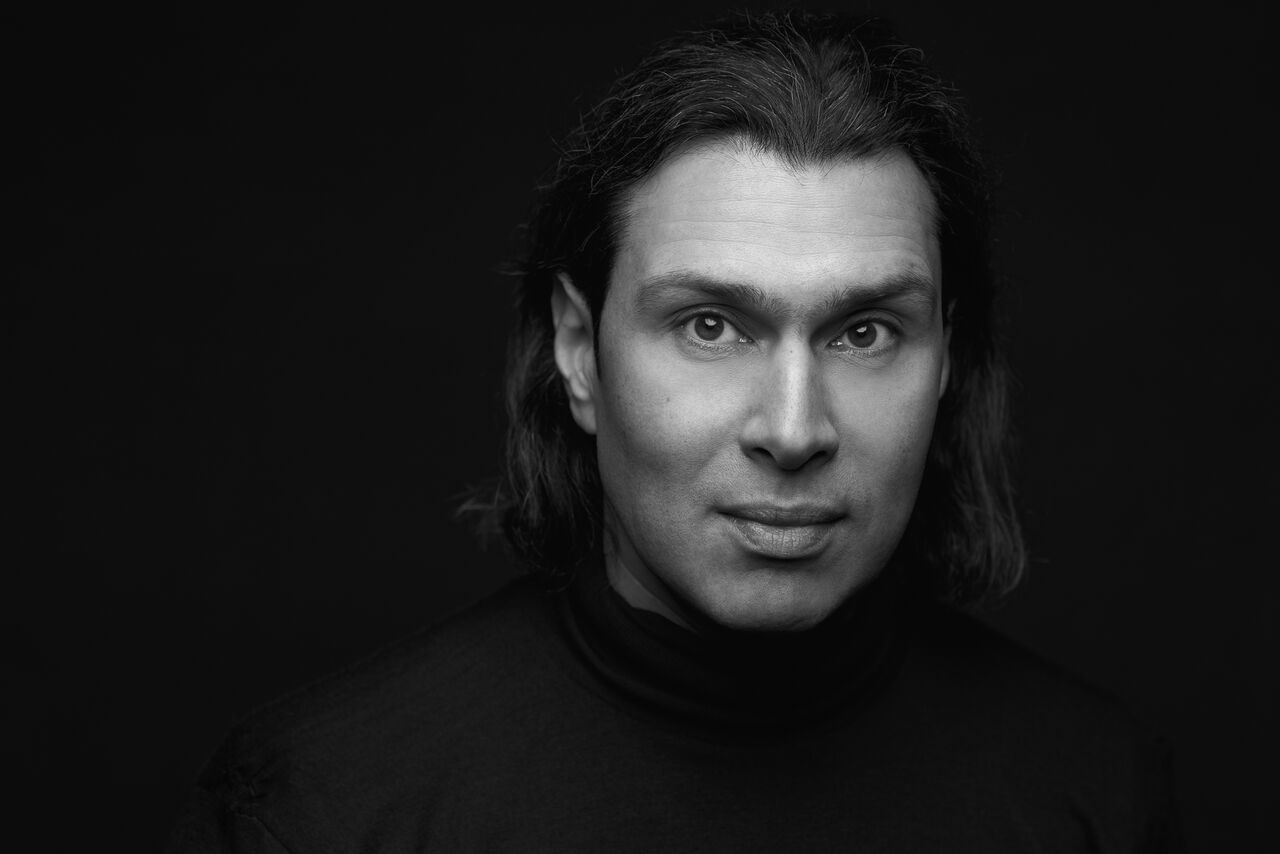
Photo: (c) Simon Pauly
2018 has been a busy one for Vladimir Jurowski. Since I interviewed the Moscow-born conductor about composer Claude Vivier in February, he’s been on a non-stop train of events, announcements, and ceremonies. He was in the middle of a very hectic spring tour with the Gustav Mahler Youth Orchestra when news came that he’d won the Conductor of the Year at the 2018 International Opera Awards. On May 9th, he won the prestigious Royal Philharmonic Society (RPS) Music Awards for Conductor. The Awards, described as “the Oscars, the BAFTAs and the Grammys all in one” for classical music, were broadcast on BBC Radio 3 recently.
Currently in Paris preparing a new production of Mussorgsky’s historical drama Boris Godunov with Belgian director Ivo van Hove, the conductor — well-read, artistically adventurous, very articulate — is on the cusp of entering something of a new world. It March it was announced that he’ll become the next General Music Director of the prestigious Bayerische Staatsoper (Bavarian State Opera), alongside Serge Dorny (currently Director of the Opéra National de Lyon), as Intendant in the 2021-2022 season. He’ll also lead a new production of Strauss’s Der Rosenkavalier, directed by Komische Oper Berlin Intendant Barry Kosky, opening at the famed Munich house in the first half of 2021.
I write “something of a new world” because, of course, Jurowski has been immersed in various facets of the new throughout his life. Raised in Moscow, the son of a conductor and hailing from a long line of artists and musicians, Jurowski and his family moved to Germany as a teenager; not long after, he had his first opera conducting job at the Wexford Festival Opera, and then made his Royal Opera House debut (with Verdi’s Nabucco) in 1996. From there, Jurowski developed something of a “wunderkind” reputation, but proved, with great flair and a creative confidence, that he was far more than a youthful flash-in-the-pan. Among many appointments, he was, from 2001 to 2013, Music Director of the Glyndebourne Festival Opera, a celebrated summer event known for its theatrical and musical adventurousness. Last year he returned there to conduct the world premiere of Hamlet — based on the famous Shakespeare work —by Australian composer Brett Dean. (I liked this.) He’s made celebrated recordings and led performances of both opera and symphonic repertoire at a variety of famous houses, including numerous appearances at the Metropolitan Opera.
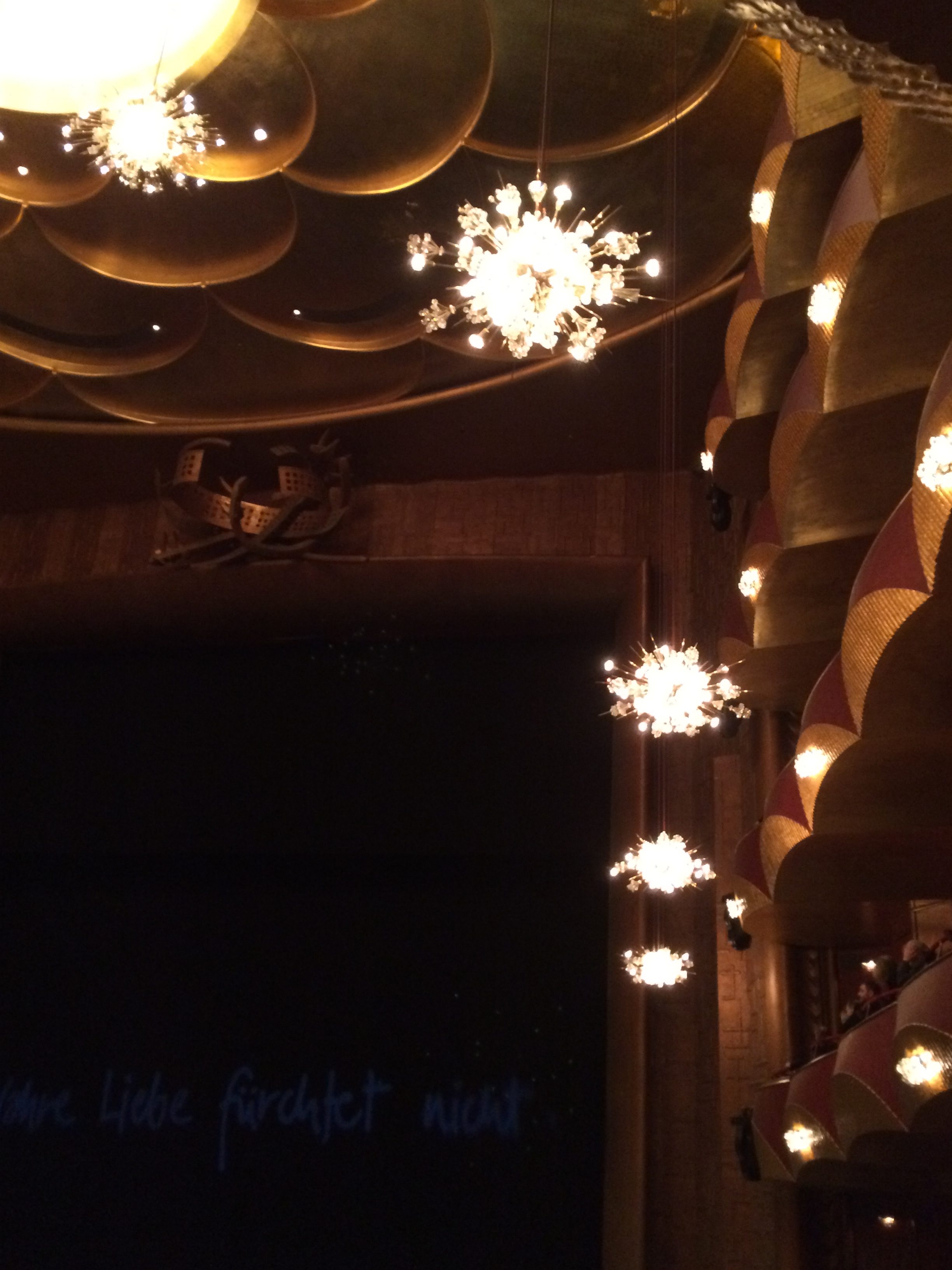
Lights at the Metropolitan Opera House. (Photo: mine. Please do not reproduce without permission)
In 2013, his reading of Die frau ohne Schatten (The Woman Without A Shadow) was hailed (rightly) by critics, and remains, one of my most cherished musical experiences — one that, in fact, opened the door to my hearing and feeling Strauss in a way I, being raised on a diet of melodious opera chestnuts by a Verdi-obsessed mother, hadn’t dreamed could ever be possible. The opera is lengthy, but time flew by that particular evening, and I remember the mix of feelings I experienced at its end (joy, sadness, contemplation) — but mainly, I remember the wordless… ecstasy.
Whether it’s Sleeping Beauty or Petrushka, Stravinsky or Prokofiev, Brahms or Bruckner, Jurowski is an artist who sees no lines between the thinking and the feeling aspects of music-making, and indeed, music experiencing. Heaven and earth, Emotion and intellect, heart and mind, flesh and spirit; these things are not separate to or within Jurowski’s artistry or approach. It makes his work exciting to experience, and sometimes, even life-changing.
As such, it logically follows that he’s busy. Titles include being Principal Conductor of the London Philharmonic Orchestra (LPO), Principal Artist of the Orchestra of the Age of Enlightenment (OAE), Artistic Director of both the State Academic Symphony Orchestra of Russia (Evgeny Svetlanov), and Artistic Director of the George Enescu International Festival in Romania. As of last fall, he is also Chief Conductor and Artistic Director of the Rundfunk-Sinfonieorchester Berlin (RSB), who announced their new (and very creative) season just days after we spoke in Berlin earlier this year.
Once I flipped through the immense program (which came bound by a plantable peppermint seed wrapper), I wanted to chat with him again, about the new season and its clear underpinnings in social consciousness – as well as about the LPO, and most especially the Munich appointment. Opera people like to talk (and/or argue) about the relative merits of updating works, the need to attract new audiences, and what role (or not) tradition might play. If you asked a classical music person what needs to happen in opera, you’d get a predictably wide array of opinions. I wanted to ask Jurowski the implications of bringing a forward-looking ethos to Munich, one of the most famous of houses, and discuss the expectations being brought to an art form that has, at various points and locales, been the antithesis of innovation.
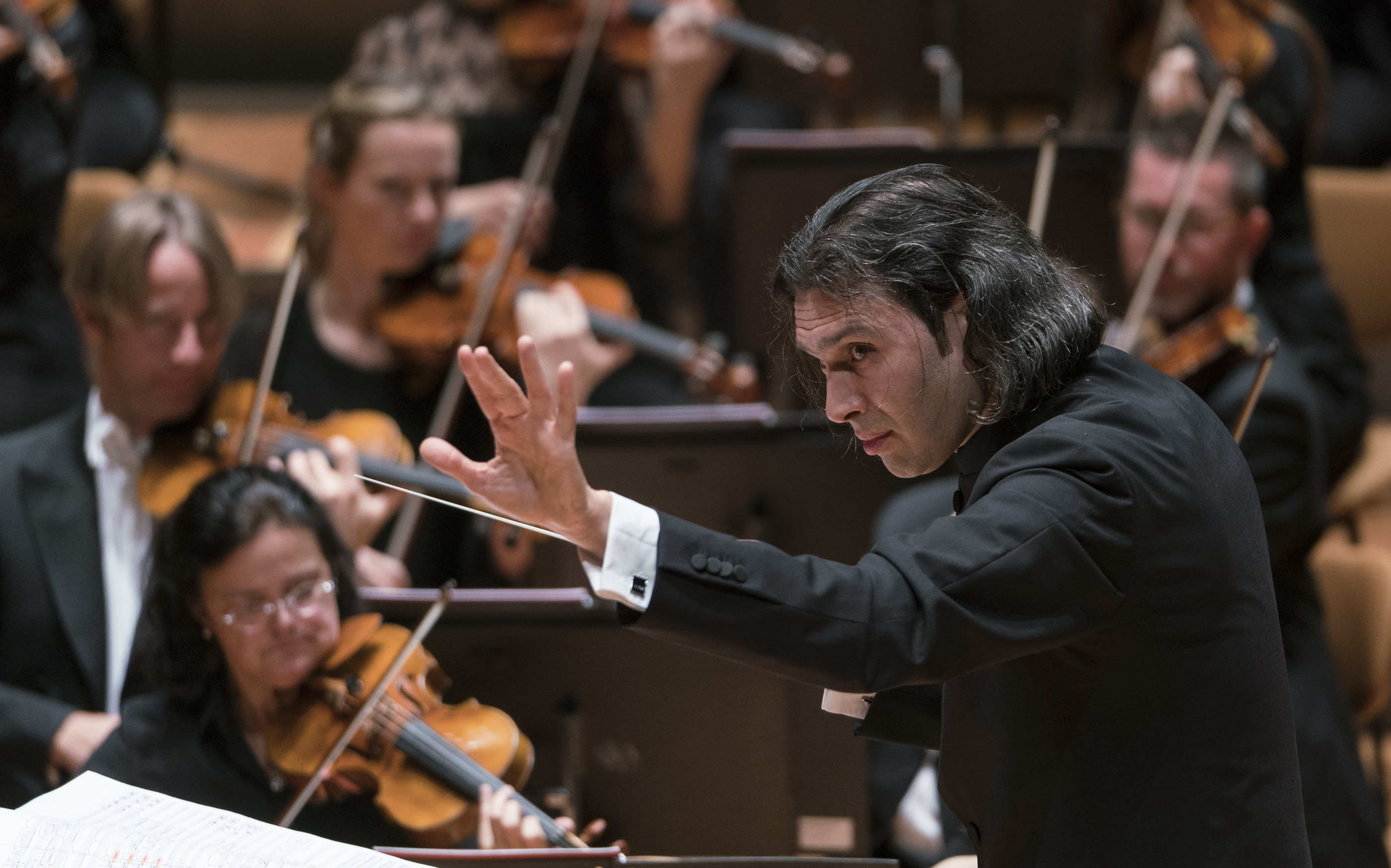
Vladimir Jurowski leading the Rundfunk-Sinfonieorchester Berlin in September 2017 as part of Musikfest Berlin. Photo: (c) Kai Bienert
There’s a real thread of social conscience in the new RSB season — the theme of “humans and their habitats” features strong ideas around nature and responsibility, both in the music and in the extracurricular programming choices. Why this theme, now?
Well, I do not believe that music can alleviate societal ills. I don’t believe classical music can cure anything in society or change people We know about so many terrible human beings who were classical music fans, including Hitler, Goebbels and Stalin; they loved their classical music and it didn’t make them better people in terms of their behaviour. We also know Nazi doctors had classical music playing while executing their terrible experiments. My personal feeling is that we should make classical music again become an important, ideally an indispensable, part of our communal life. Obviously we cannot quite reach the status of classical music in the 19th century, where it was the central social event, but we can at least refer back to not-so-distant past. For instance, back in 1989, when the uprising started in Eastern Germany and there was a real fear of the Eastern German government employing military force against people on the street, it was Kurt Masur who made the Gewandhaus the place of peaceful discussions — he agreed with the government and authorities that there would be no weapons used. So music can become the “territory of peace” even at times of war. The main ability of music is to establish a non-verbal communication between people and make them forget, for a while, their day-to-day existence in favour of higher realms of beauty and truth which music is able to communicate.
My main aim is to show to people that (classical musicians) can be an important part of this society, but we cannot expect people to come to us, we have to go out. That’s the difference today. We have to compete on so many levels, with social media and various types of mechanical reproduction of music; musicians who create live music have to make their — our — concerts indispensable events, and one of the ways to attract audiences is pulling their attention at certain aspects of our life and society, which are not directly related to music but have a universal impact on the entire life. One of those aspects is nature; the idea to make a whole season dedicated to nature is because it is something that concerns us all, none of all can exist in this world without nature intact and functioning. Because there is so much music inspired by nature, why not try and inspire more people to be more conscious and more active in protecting the environment through the classical form?
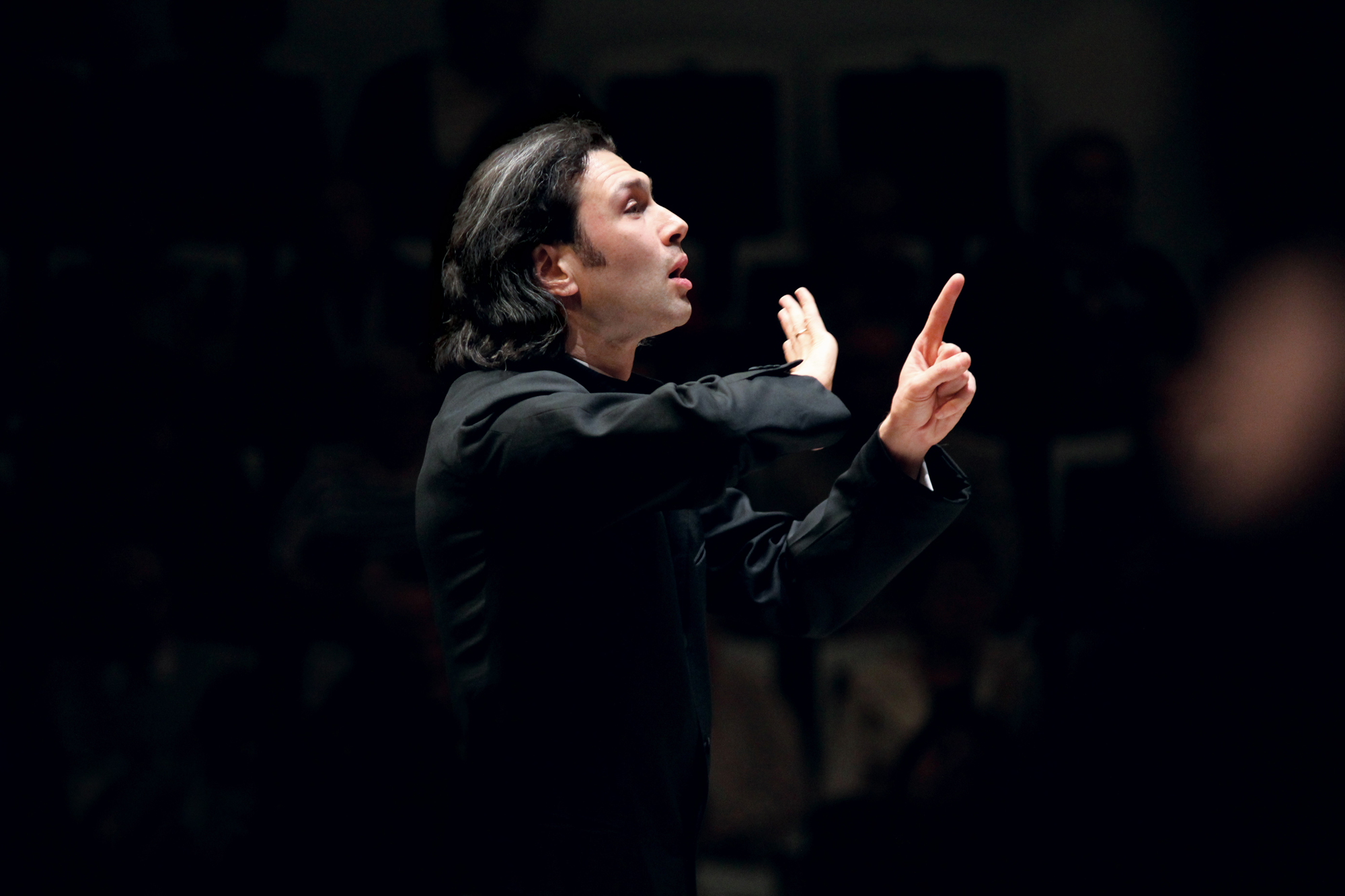
Photo: (c) Roman Gontcharov
Your new partner in Munich, Serge Dorny, said in an interview recently that “we cannot simply experience the Arts as goods to be consumed. The Arts should oblige people to think and ask questions and maybe fundamentally change people’s perceptions. It doesn’t mean we give answers but I hope the way you emerge from a performance has made a difference to your life and that it has changed your perception.” To my mind, that complements something Graham Vick said at the International Opera Forum in Madrid, that perceptions have to be actualized in practises, productions, and operations.
I agree in principal with Serge, and I have always been saying the same thing. I’m against the consumption of the art; I’m for the active co-involvement of the audience, because obviously that’s how I’ve been raised myself. When listening to a concert, I participate actively via listening, feeling, and thinking. And I like Graham Vick’s work a lot – I’ve done a lot of opera with him, and I completely share his political and social views on these things. I think there’s a lot we can do if we stop seeing only the entertainment side of art. Of course there has to be the entertainment there somewhere, and there has to be a lot of beauty in what with do, but if it’s only about beauty, and nothing about the truth of life, then I think there is no real way forwards.
You said in an interview last year that you hope to inspire people to think for themselves, outside of a herd mentality,away from a knee-jerk reaction. That feels as if it’s reflected in your programming at both at the RSB and the LPO.
I think it’s always two sides: one thing is thinking for yourself, the other is feeling for yourself. That means not coming to a concert with a programmed expectation of an ecstasy at the end. You don’t know what it is — let yourself be surprised, and maybe even shocked! I think there is a real deficit of real emotion nowadays. We are dealing with so much surrogate emotion, and surrogate feeling in day-to-day life, and particularly in the mass media; it’s highly important to provoke real feelings. I was speaking earlier today with Dmitri Tcherniakov, and he said, “You know, it’s an exhilarating feeling when I bring to a whole audience of 2000 people an opera score they haven’t heard before.” He was referring to Rimsky-Korsakov’s La Fille de neige which he did recently in Paris, and is still an unknown piece in France and many other countries. That’s what I am hoping I can continue so long as I am actively involved in musical life, be it in concerts now in Berlin, London, or Moscow — or future opera in Munich: I can surprise people and also be surprised myself.
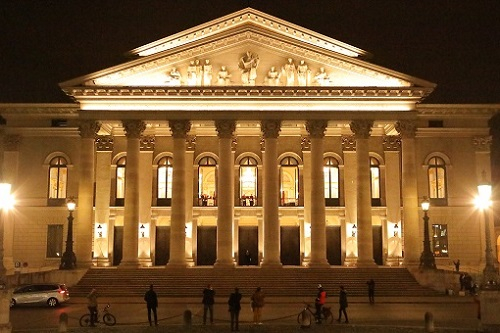
The exterior of the Bavarian State Opera, Munich. Photo: © Wilfried Hösl
There was so much hand-wringing over the retirement of the Schenk production of Die Rosenkavalier in Munich. It’s as if people have already made their minds up about the version you’ll be doing with Barry Kosky in 2020.
Yes, but it’s always been like this. It’s still like this with the classical ballet, in fact it’s much worse in the blogs. I know that because my daughter always tells me how frustrating she finds reading those classical ballet blogs; people don’t want any innovation at all, they don’t want any new reading of Sleeping Beauty or Swan Lake because it would insult the gods somehow.
“I want elephants in my Aida!”
Yes! But to be fair, I also have been through this myself, because as a kid, I used to go into the Stanislavsky Theatre where my dad was conducting, and since the age of six would watch the Eugene Onegin production by Konstantin Stanislavsky from, believe it or not, 1922. So the year I was born, this production had celebrated its 50th birthday already; by the time I came to watching the production it was already approaching 60… I loved that production. It was also the only one I knew of Onegin. I watched it again on DVD (as an adult), a filming of this same later performance from the 1990s, and I couldn’t watch without a smile, even where a smile was not very appropriate, simply because it suddenly felt so dated. I think it is the nature of theatre: the innovation becomes tradition and then gets old-fashioned. If we were to look at the great theatre productions of, say, Vsevolod Meyerhold or Max Reinhardt, or Giorgio Strehler or Luca Ronconi — great revolutionaries of their time — most probably we would find their productions hopelessly dated today because they were very much products of their time. It’s a natural process and one has to endure a certain amount of moaning and criticism from people who don’t want to see anything else; eventually they get used to it.
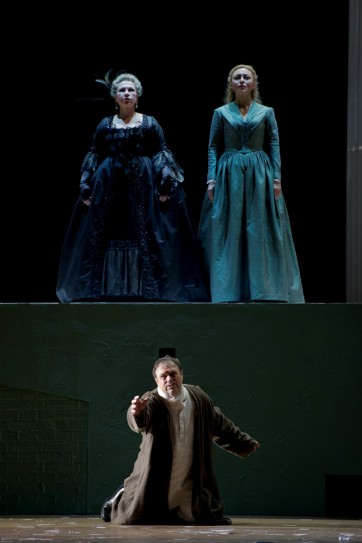
A scene from the Lev Dodin production of Pique Dame. (Photo: @Elisa Haberer, Opéra national de Paris, 2011-2012 season)
I remember when I conducted a staging of Tchaikovsky’s Pique Dame by (director) Lev Dodin in Paris in 1999, and we were booed every night, every single night, at the Bastille. Two years later, we revived it, and there was no booing… and then this production became a fashion. Now people will be moaning if they decide to stop the production.
New theatre has to offend, insult and shock, then the audience — and critics — gets used to it and eventually becomes so dependent that would not want to see anything else — that’s how it usually happens. So letting go of old theatre productions is more or less like accepting the sad truth that your older relatives, however much you love them, will age and die one day because it’s a universal law. One grows to accept those things.
But I think it’s hard for new and younger audiences. I asked my students what they think of when I play opera documentaries, and it’s always, “Wigs! Corsets! Big dresses!” That’s the automatic association with opera.
Every process of innovation takes time, but for me it’s highly important that new audiences come to opera not just because they want to see elephants and camels in Aida, or the Kremlin, cossacks and the boyars’ dresses in Boris Godunov — but in order to witness the human drama of two people falling in love in the middle of a war and thus becoming traitors of their people, or the struggle of a man at a peak of his power against his own conscience. (Boris Godunov) is about our times as well as about 1604, as it was about Pushkin’s time when he was writing it 1825, or Mussorgsky when he was writing the opera in 1869. Times change, but peoples’ characters don’t change. Do people come to Shakespeare only to see the Elizabethan costumes? I hope not.
How does locale influence this kind of approach? I would think Moscow-Berlin-London have really left their mark on you as an artist.
I am highly adaptable to various cultural habitats. Obviously the fact that I left my native country at 18 has contributed partly to this adaptability and the chosen profession and all the travelling which came with it made me even more of a cosmopolitan. I enjoy learning new languages and studying people and their cultural traditions in the countries where I have lived and worked – today I could survive in almost any culture. I never prepare myself specifically for a new working situation; the only thing I study before I go to a new place is a little bit of the language and a little bit of the history. Then I simply wait for my first impressions of the place, of the new situation before I decide how to act further.
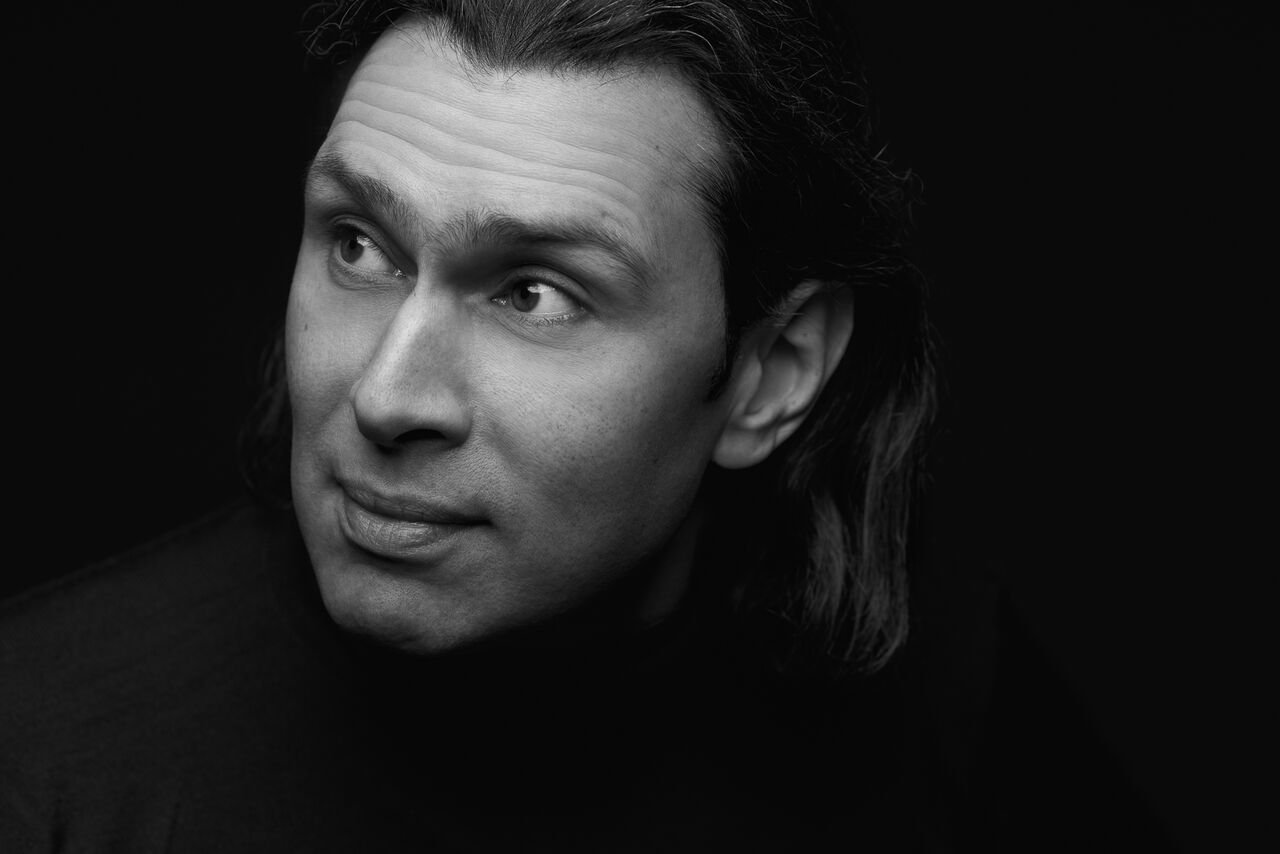
Photo: (c) Simon Pauly
It’s very similar to performing in a new hall or theatre: you play a note or a musical phrase, and then you wait for the return of the sound, for the resonance and then you react accordingly… what I can offer to any new place is my artistic vision, which is roughly always the same, but “many paths can lead to Rome” as they say, so I am prepared to amend my path if I see there is a short cut. Munich will be different to Berlin, London and Moscow, and yet, you know, we’re all humans and we all love music and theatre — there is something we all have in common and we share.
